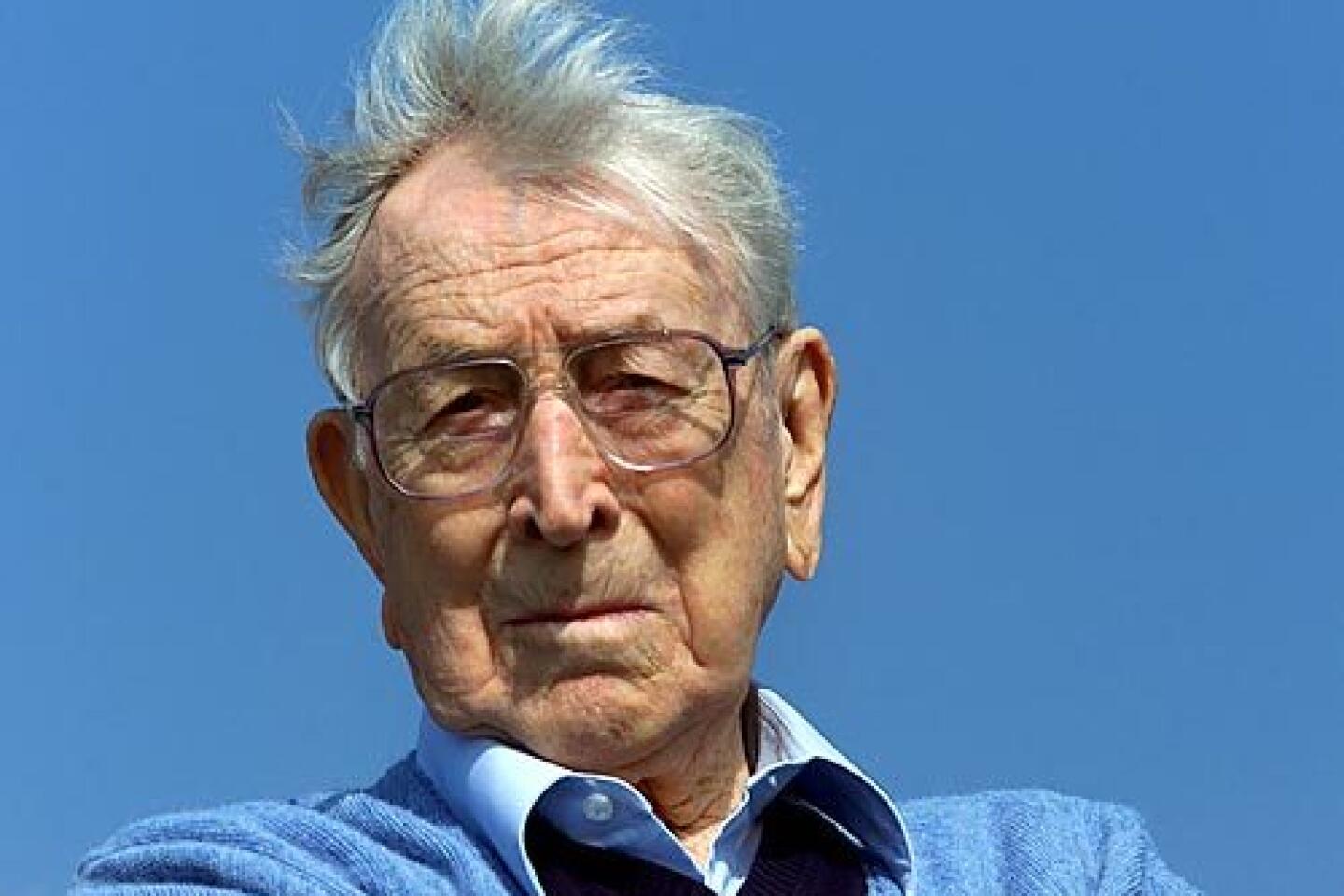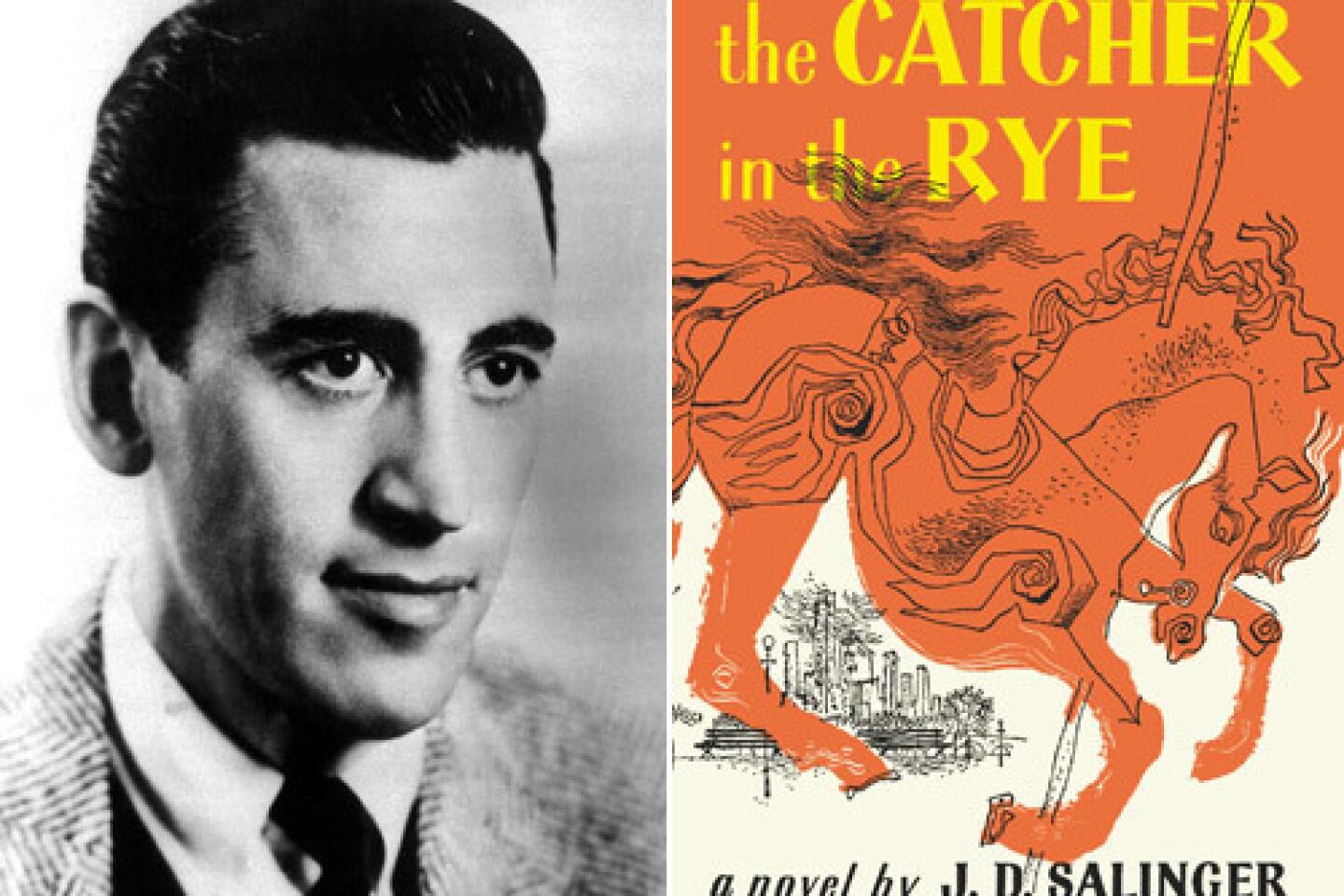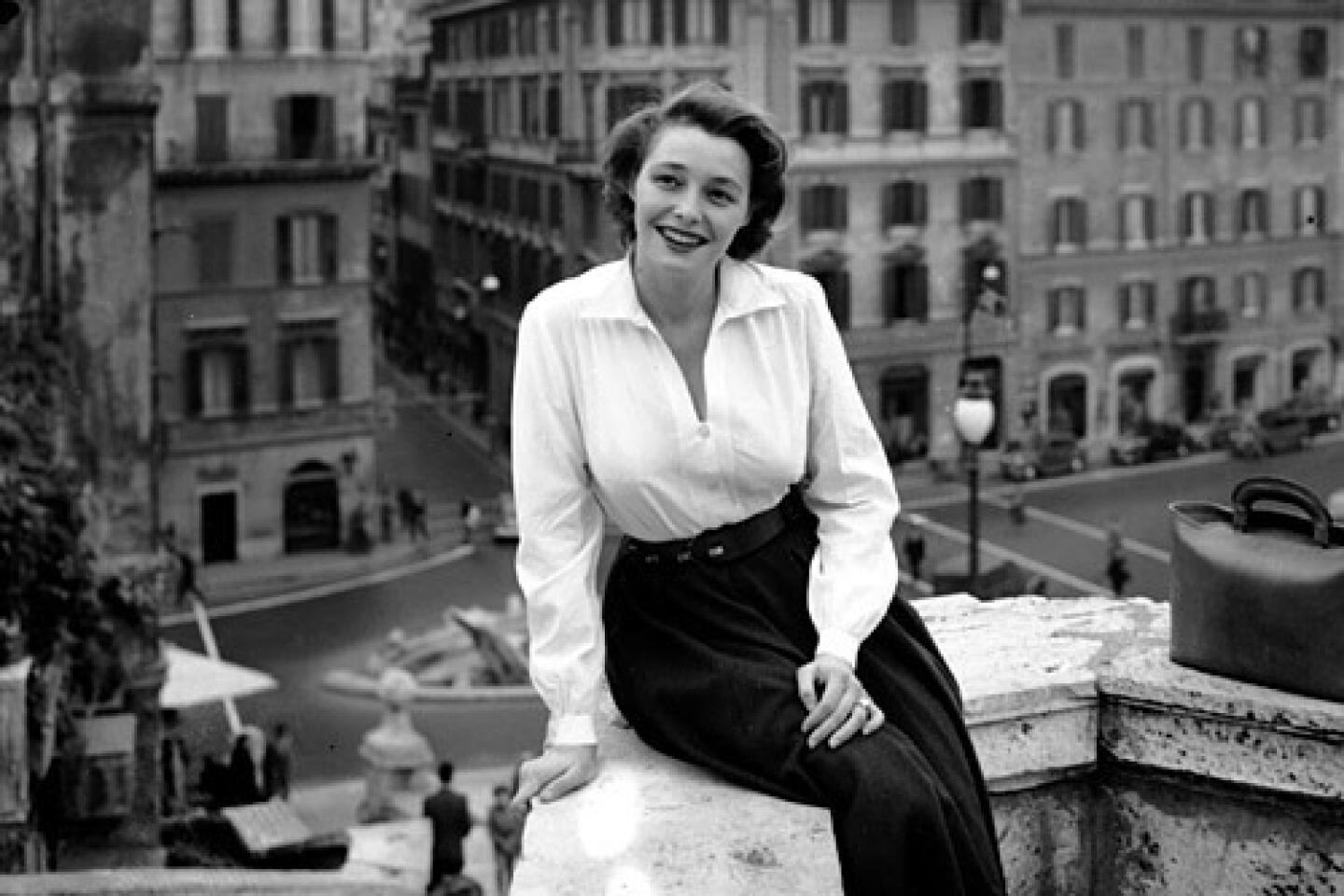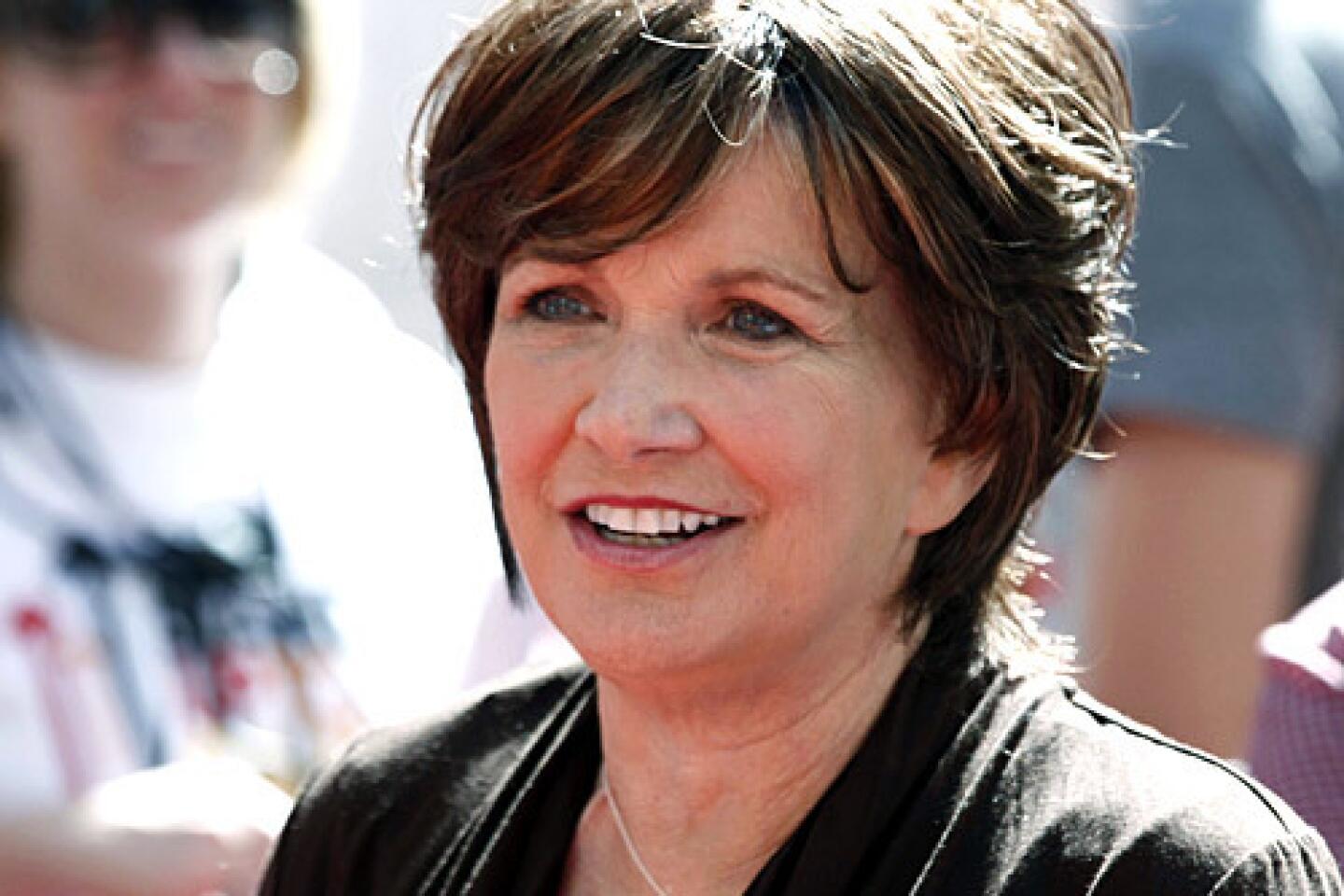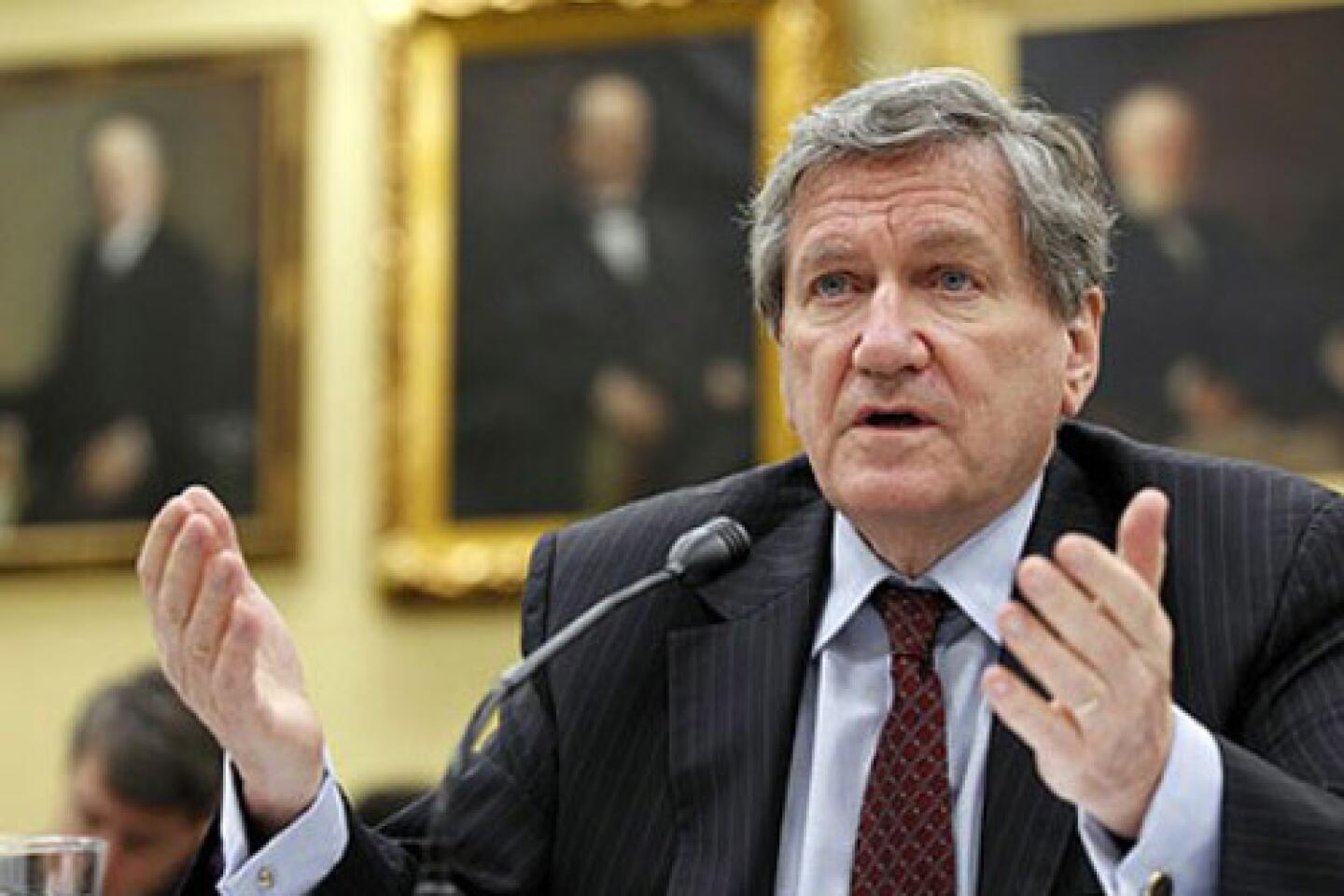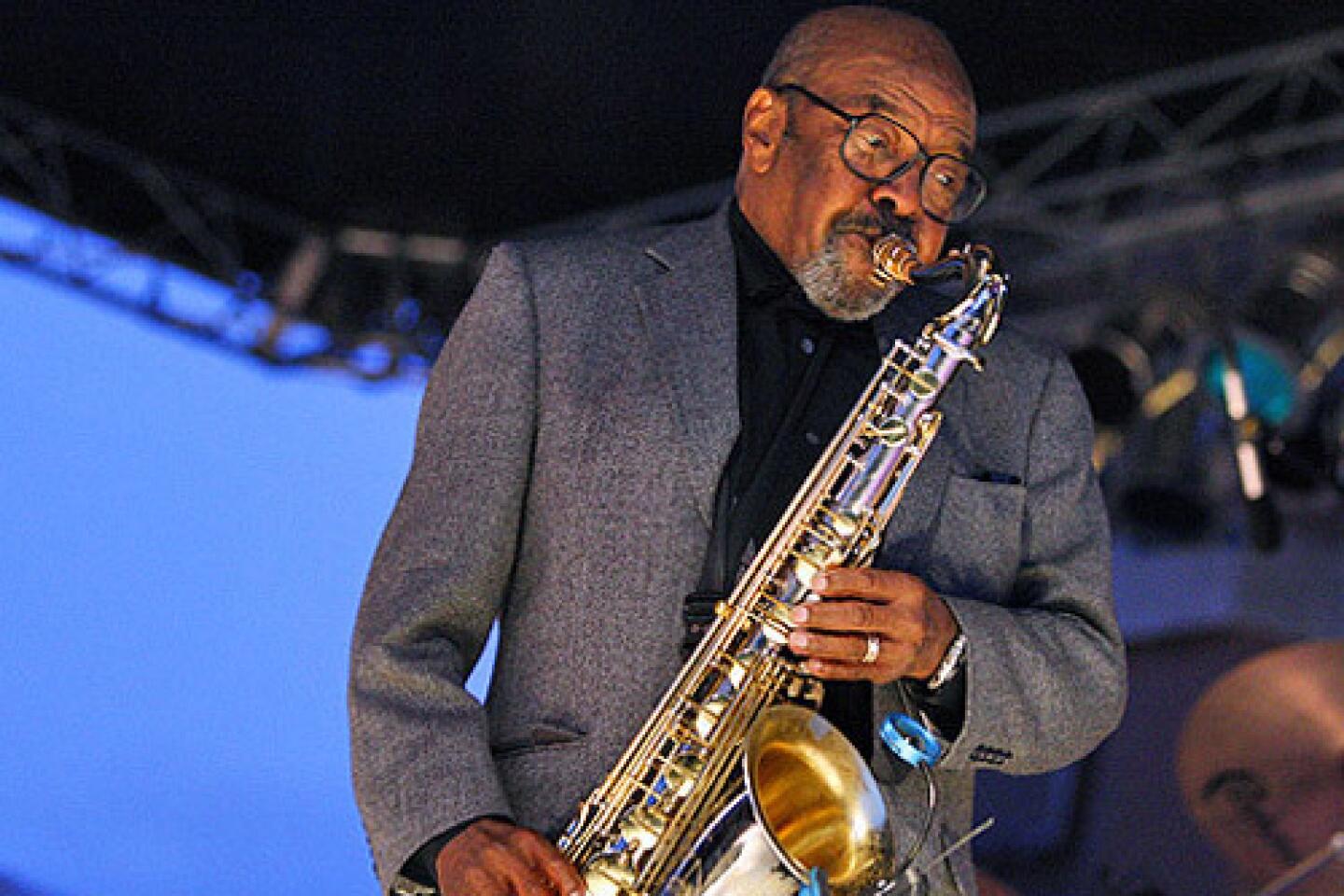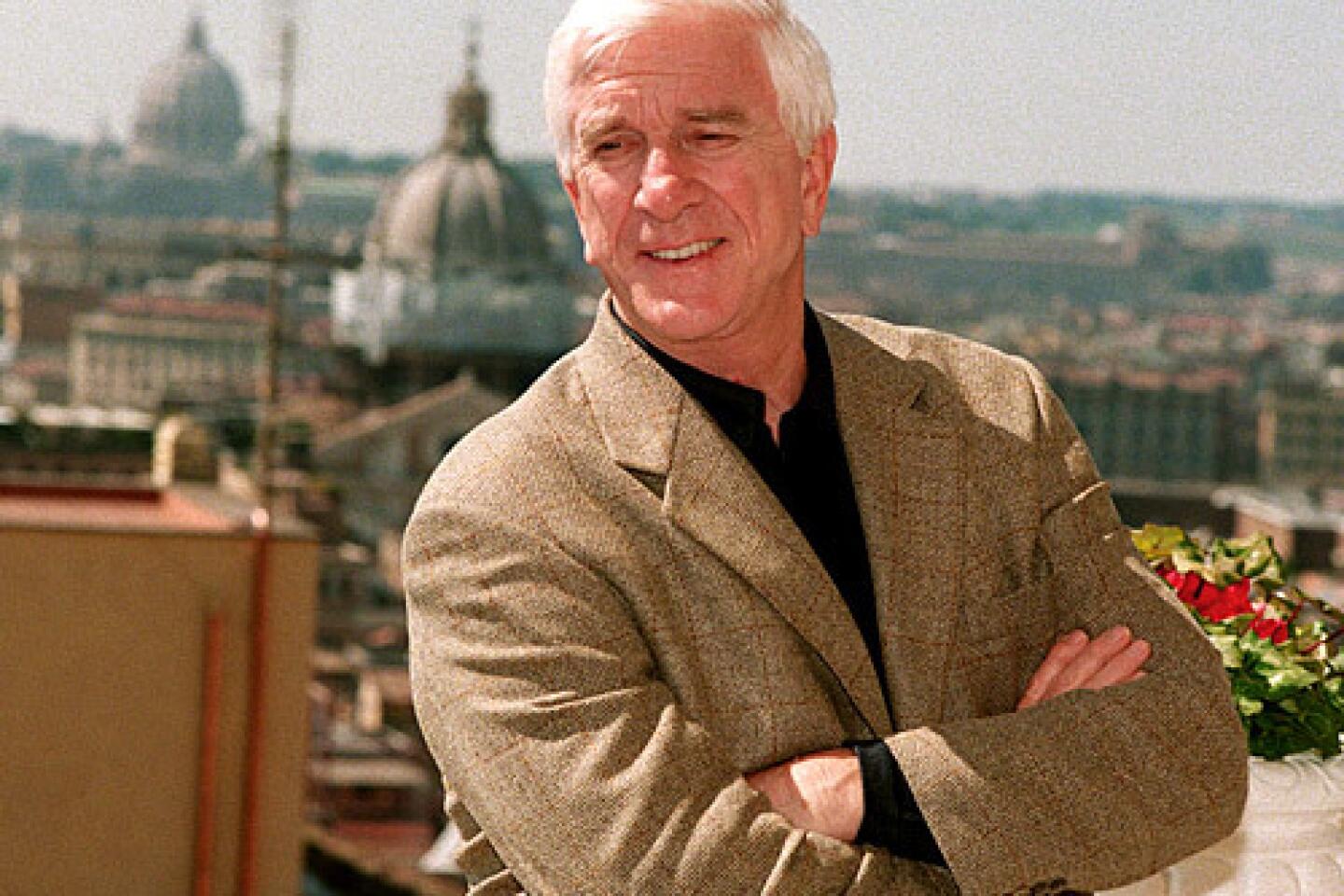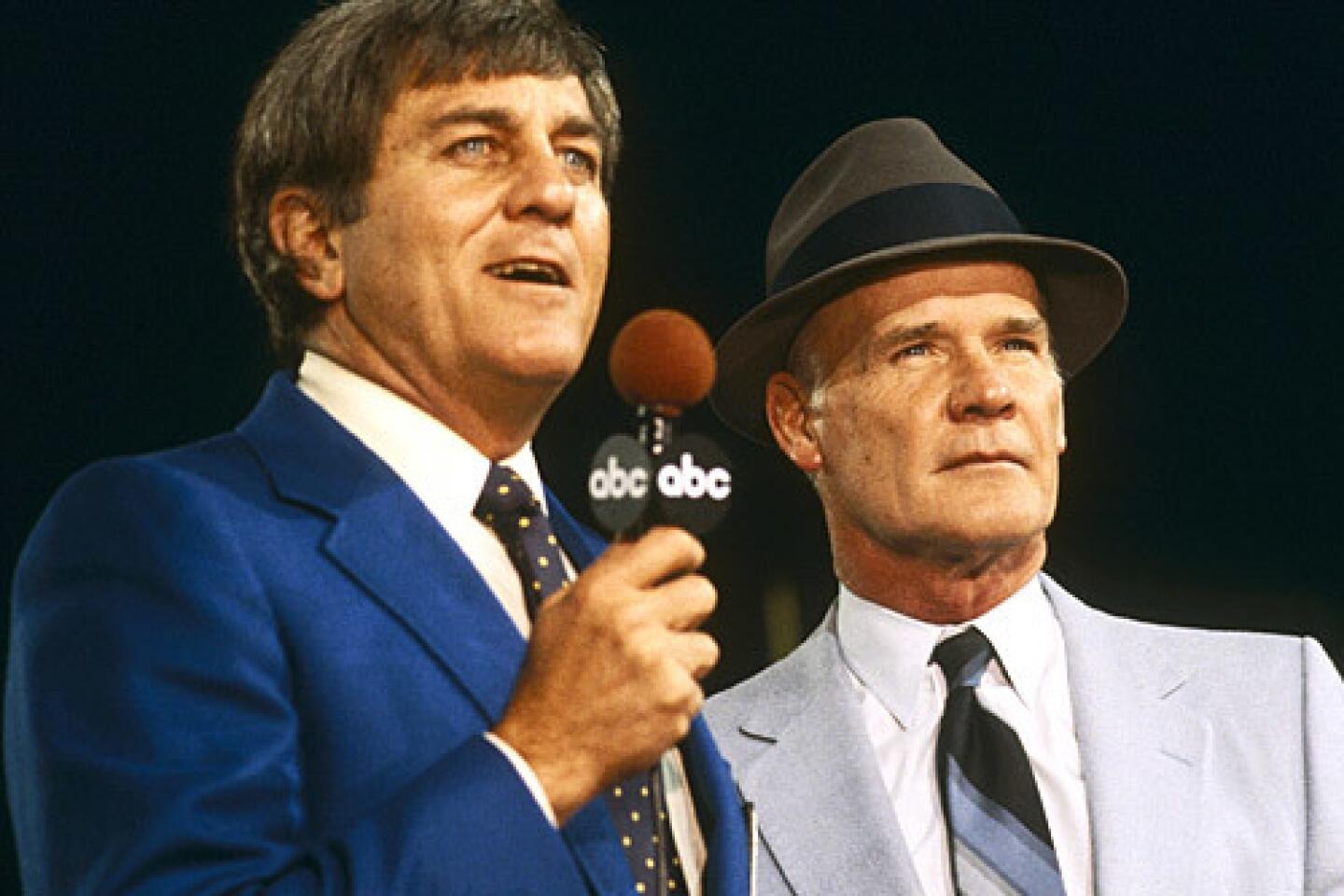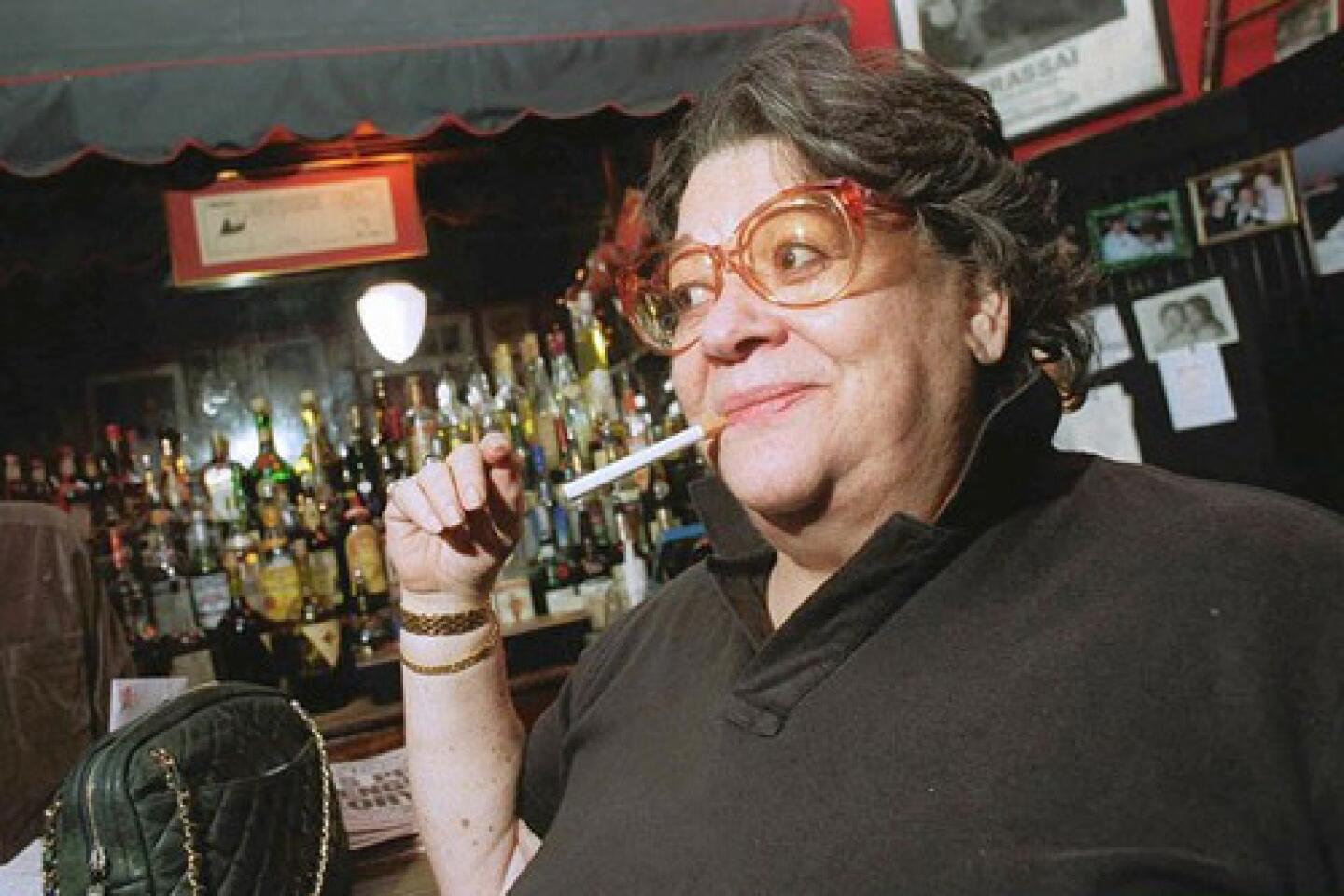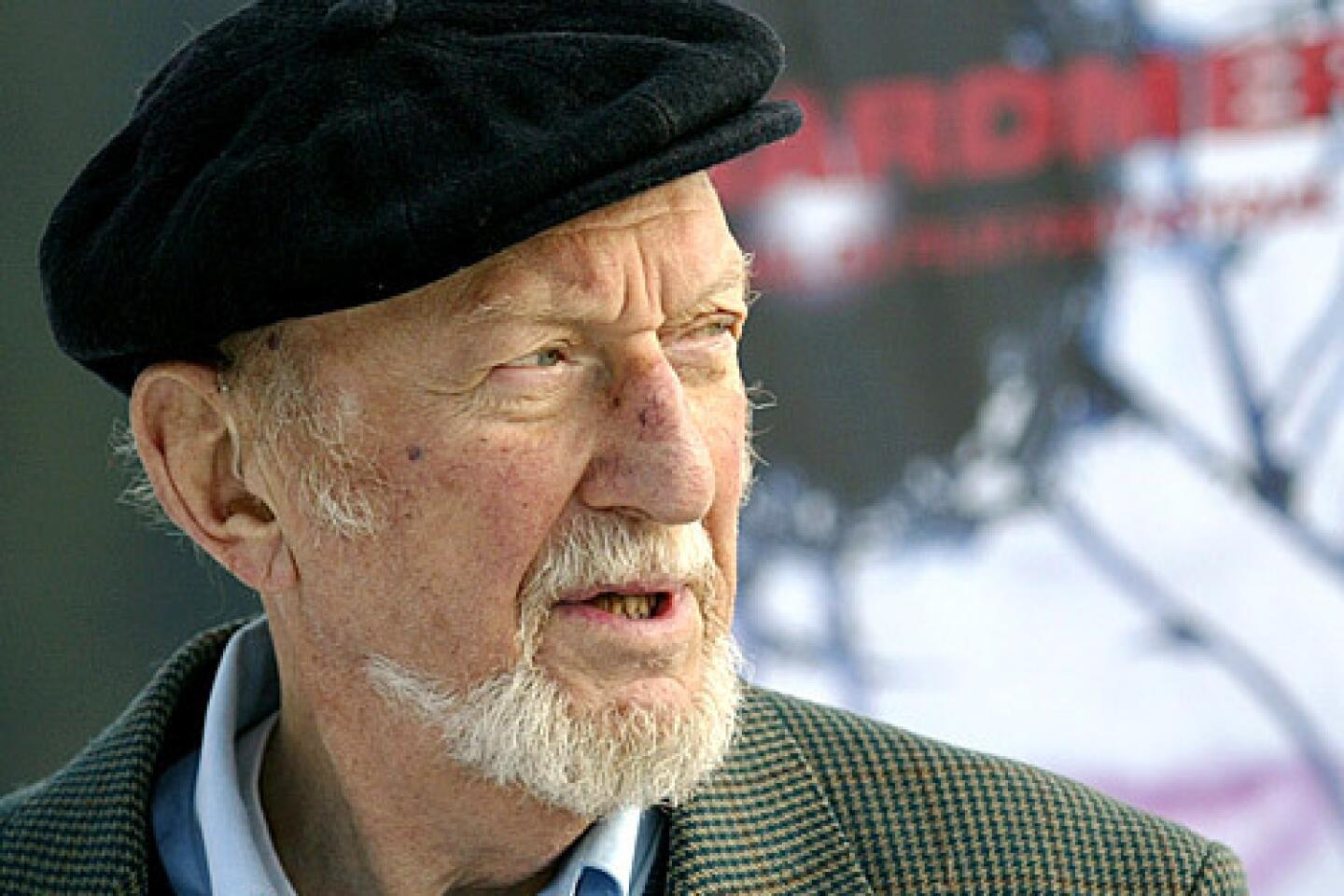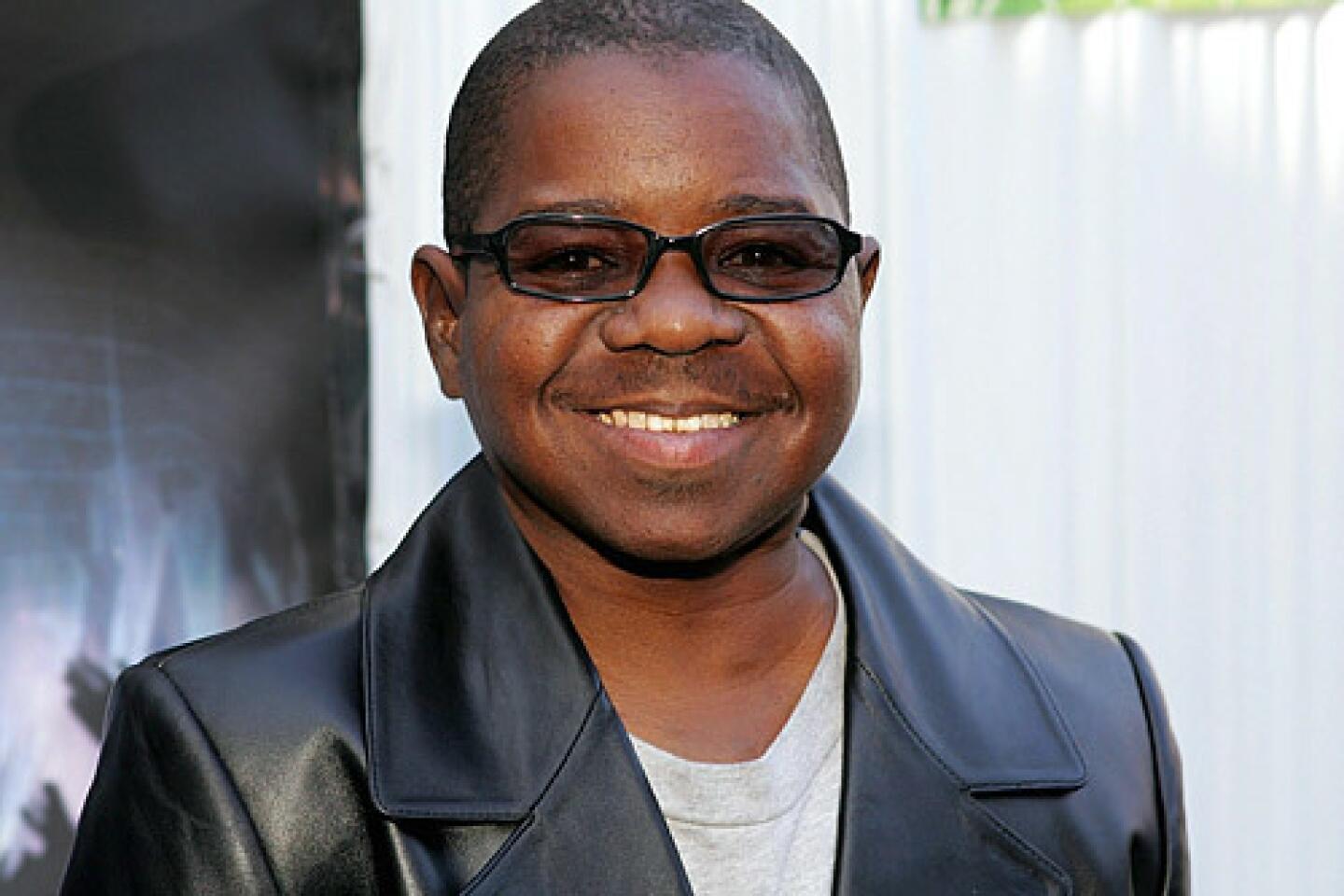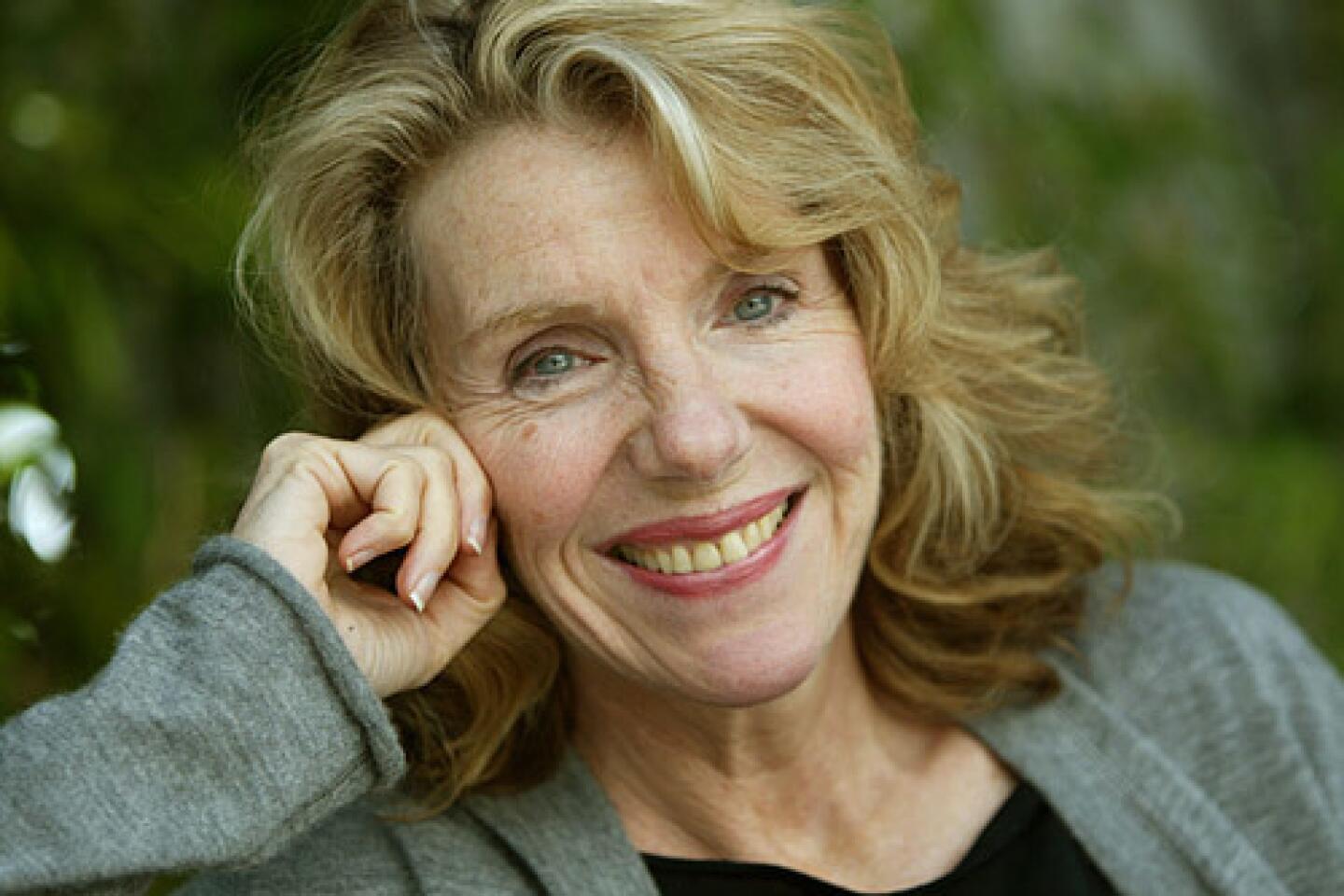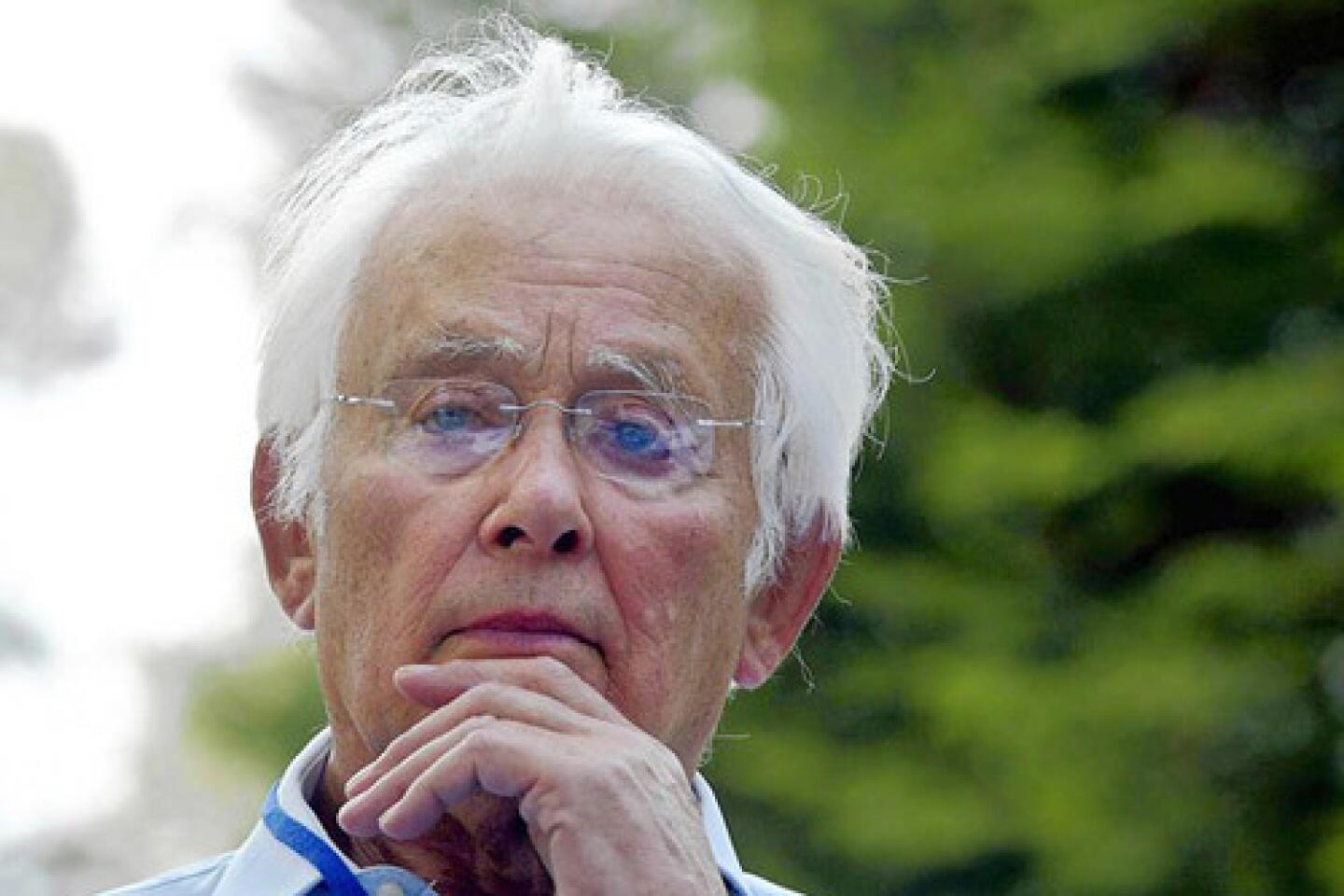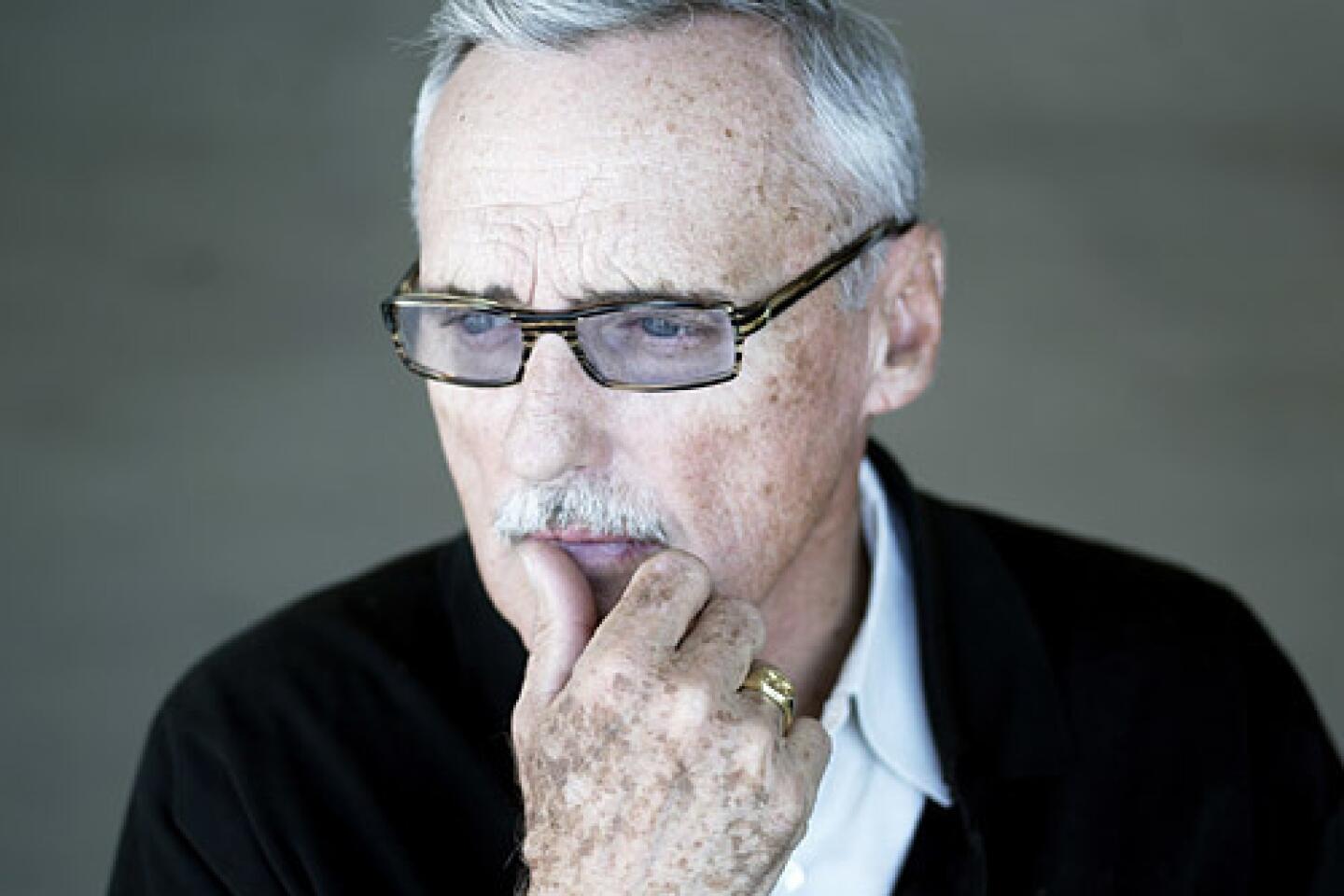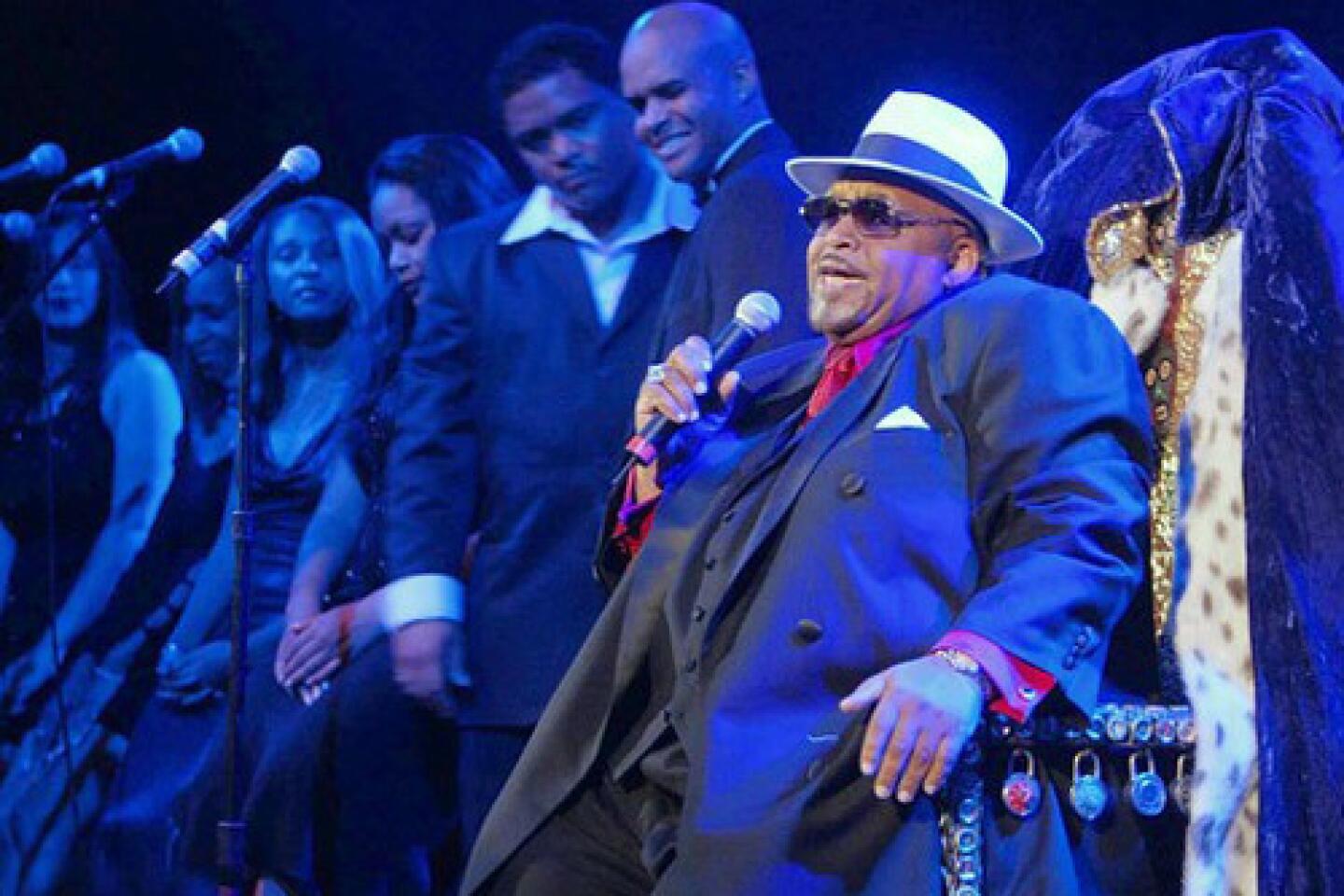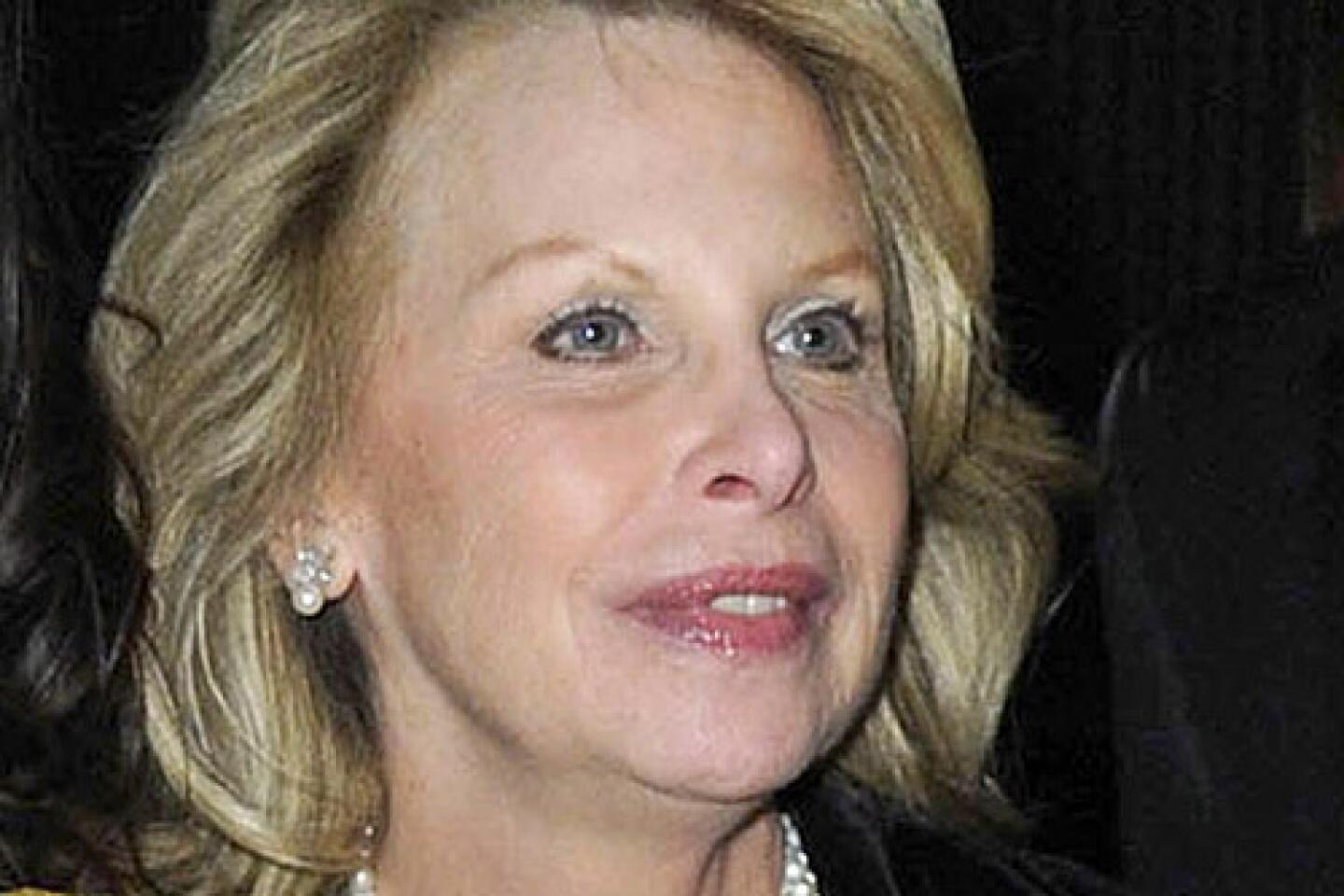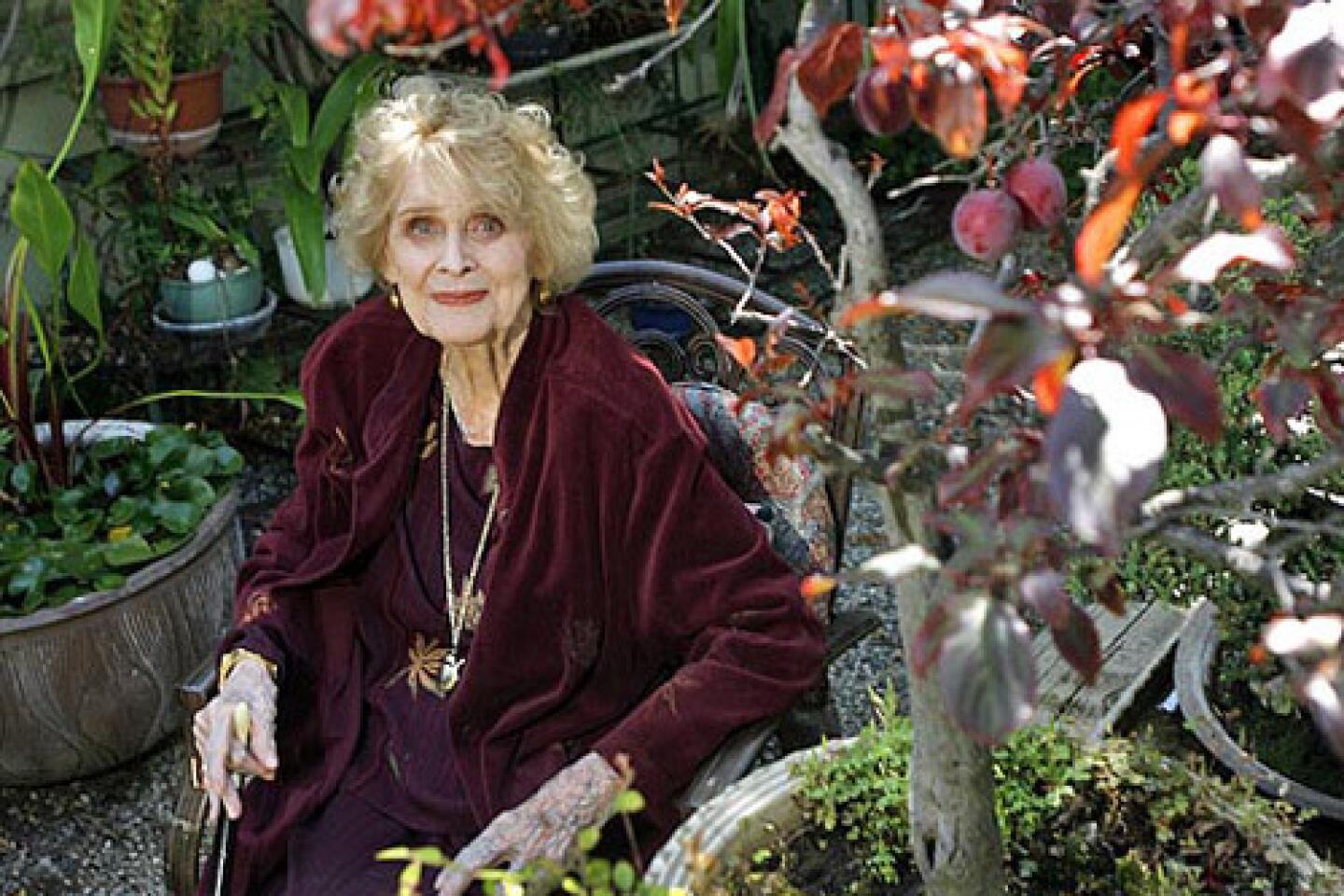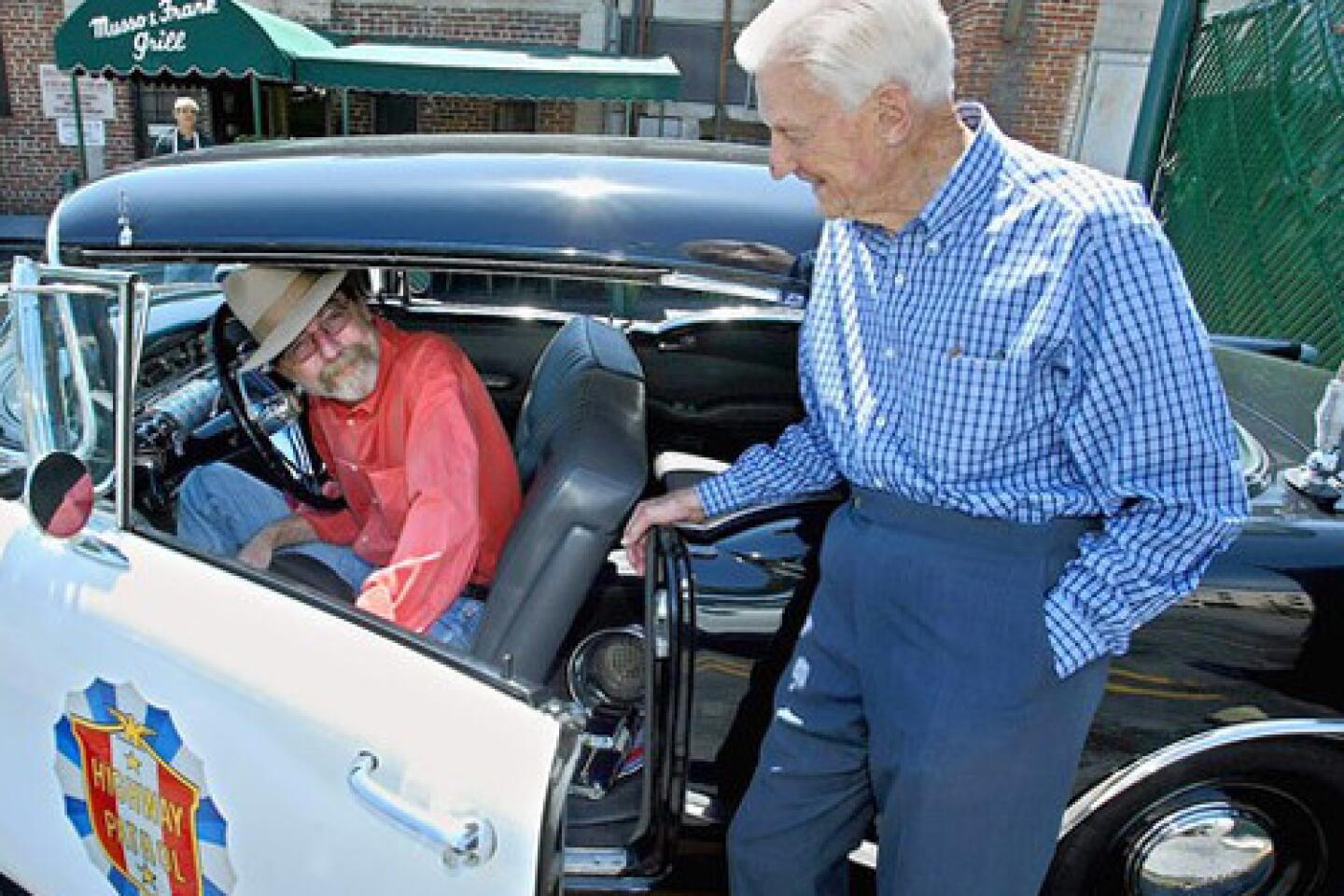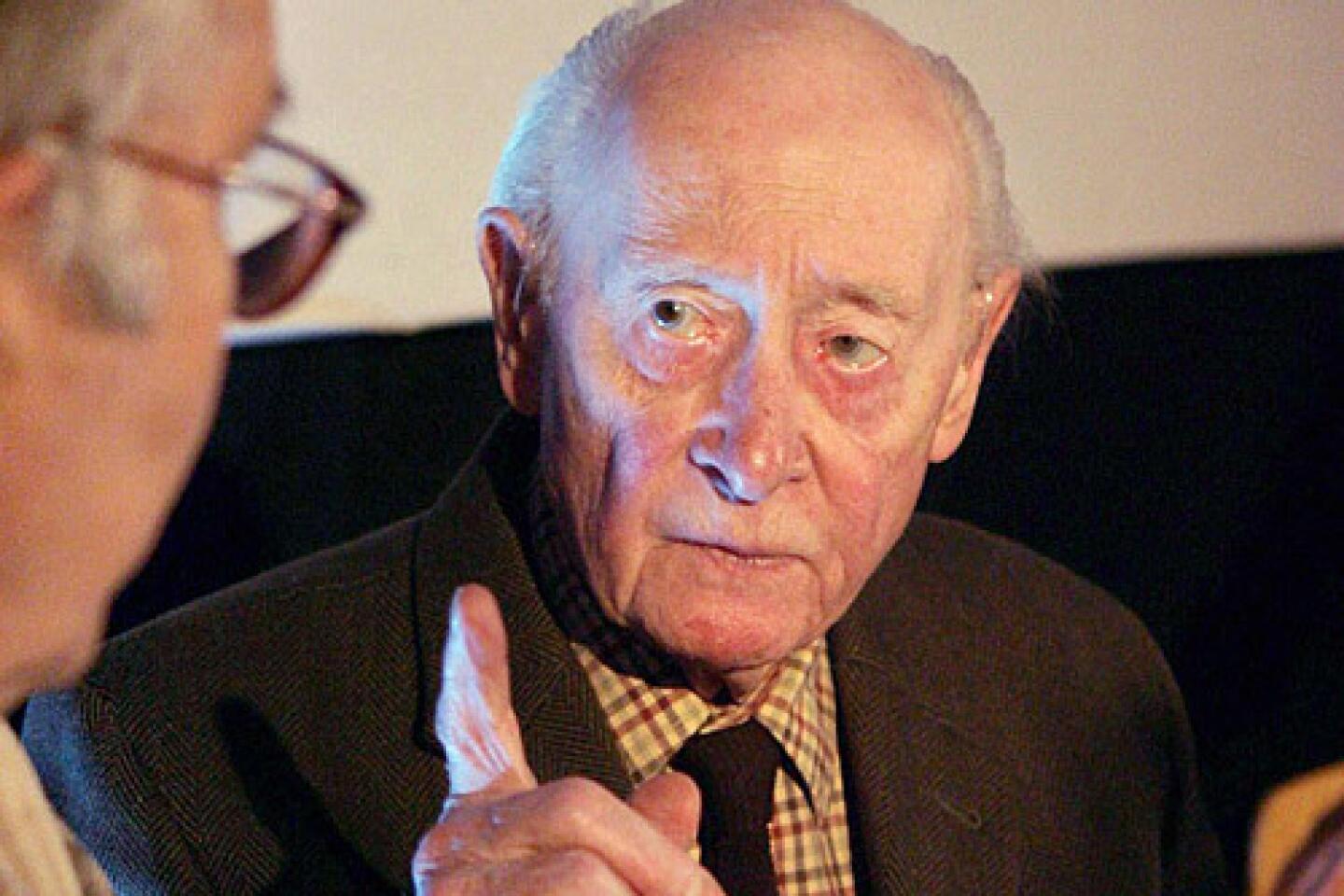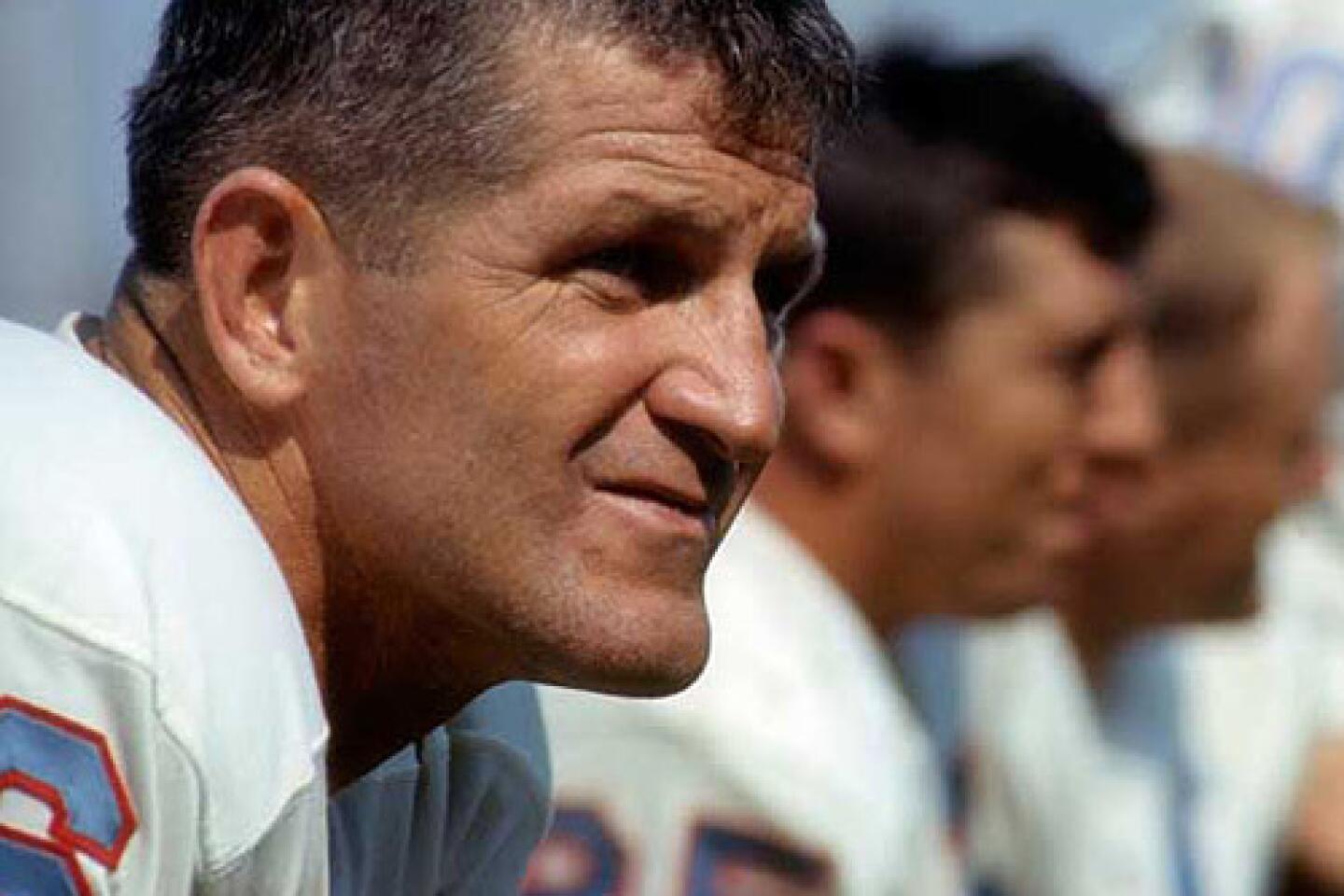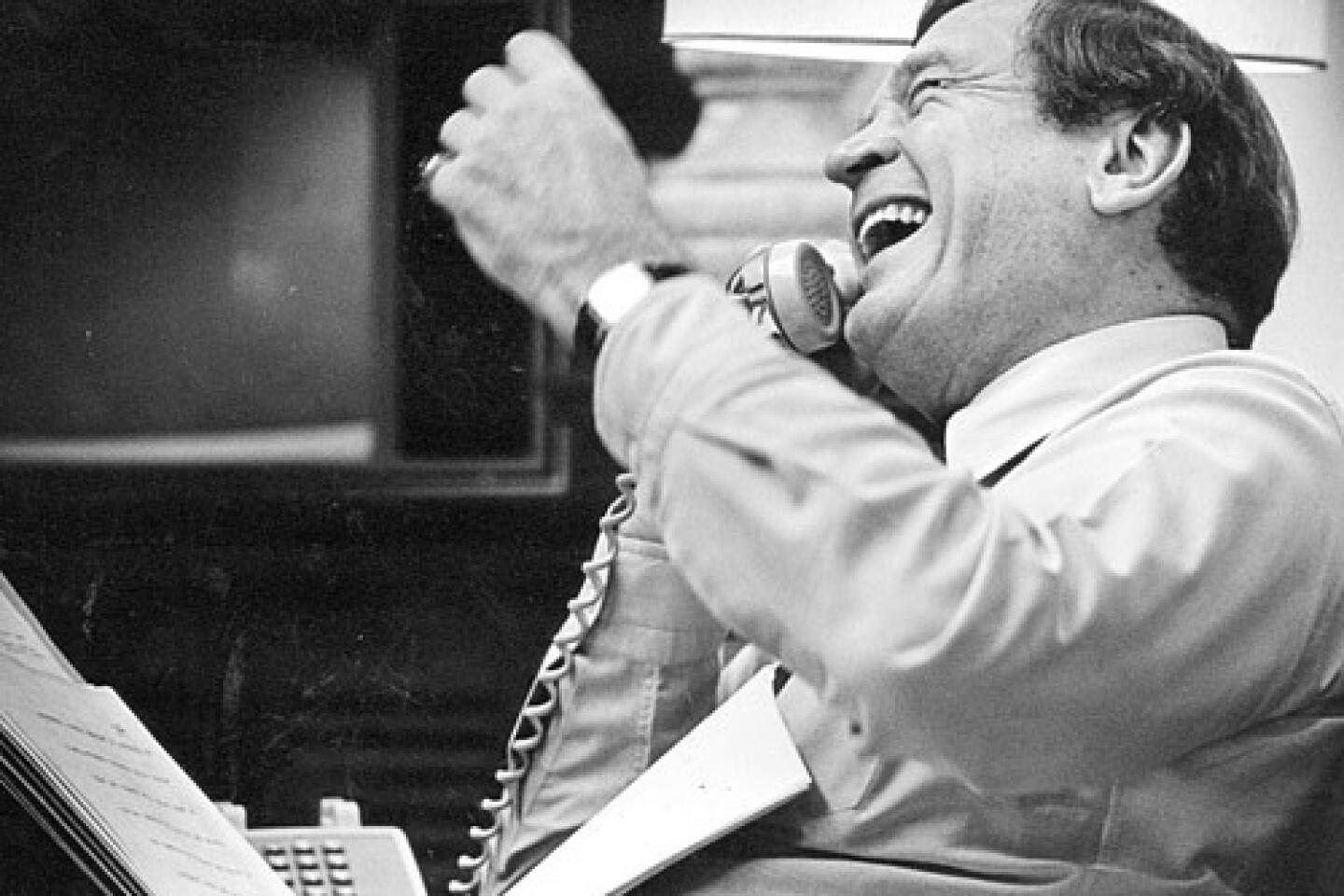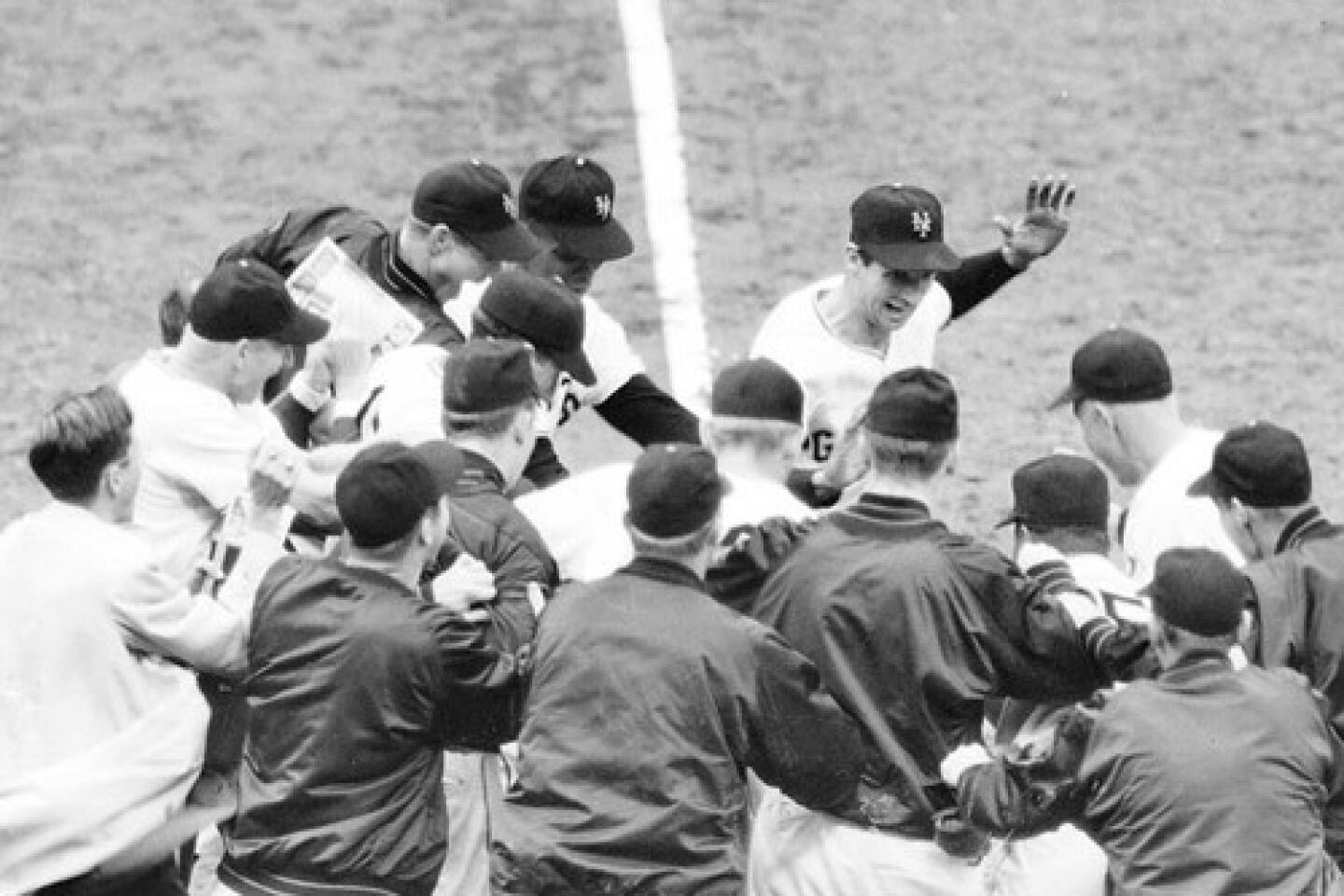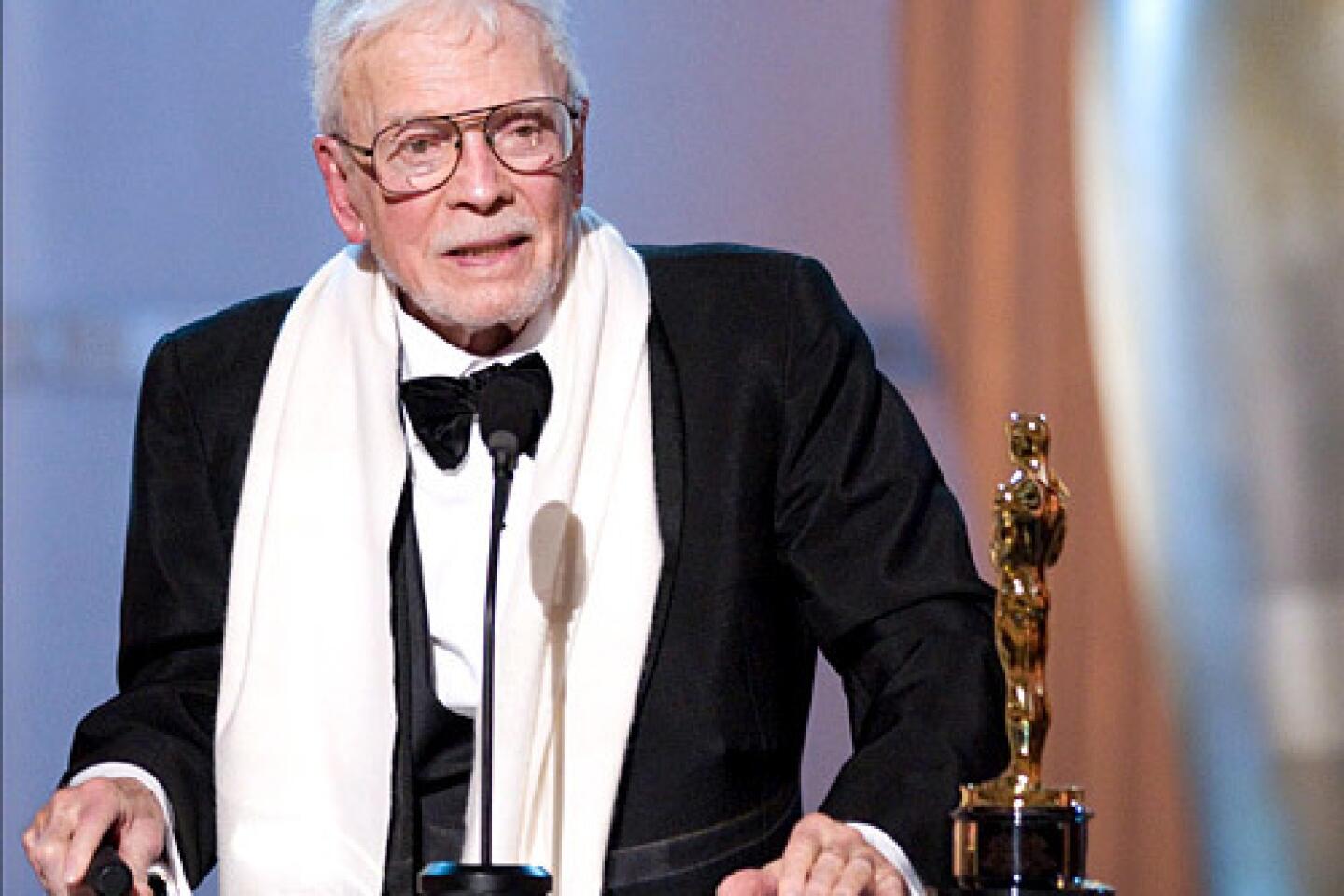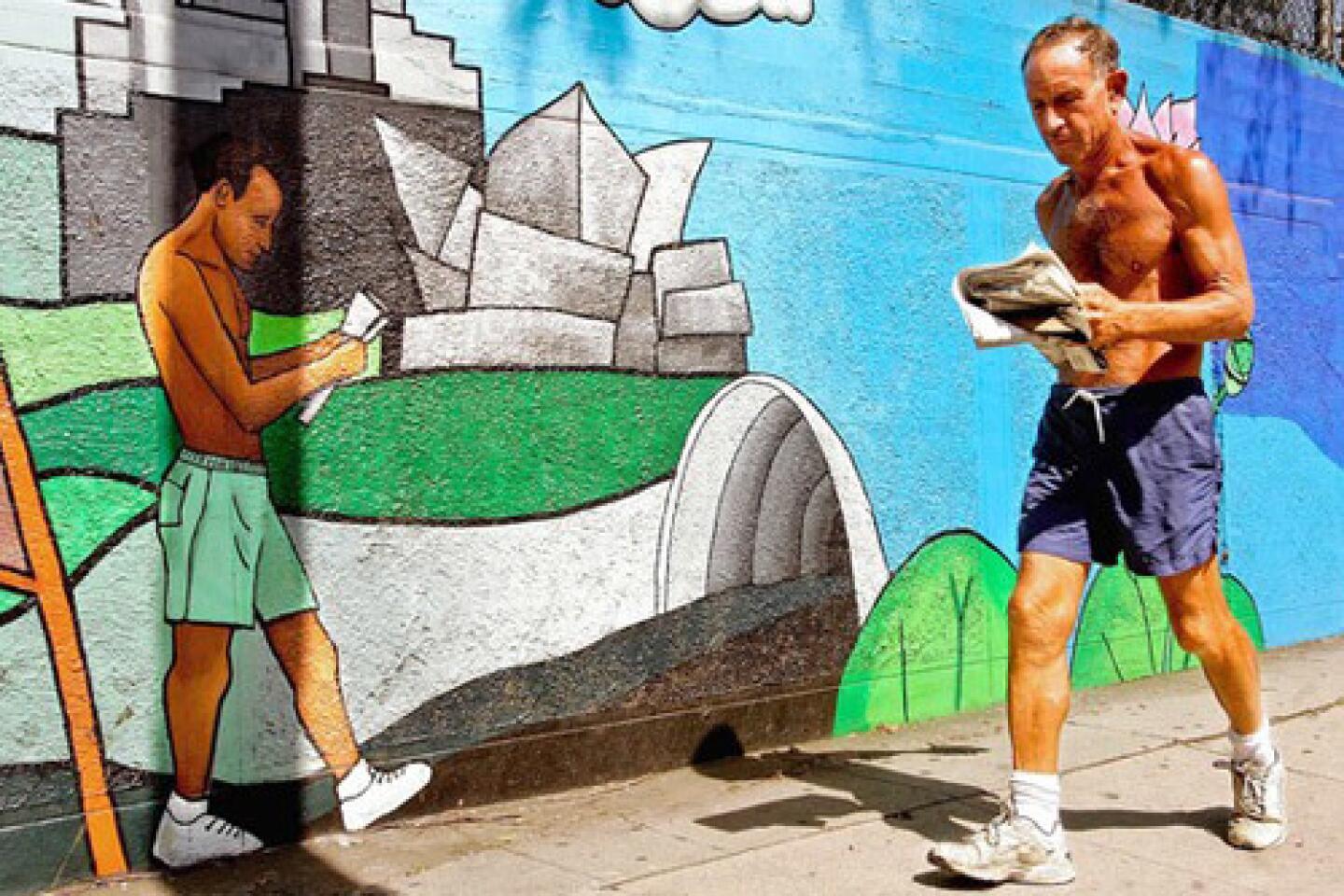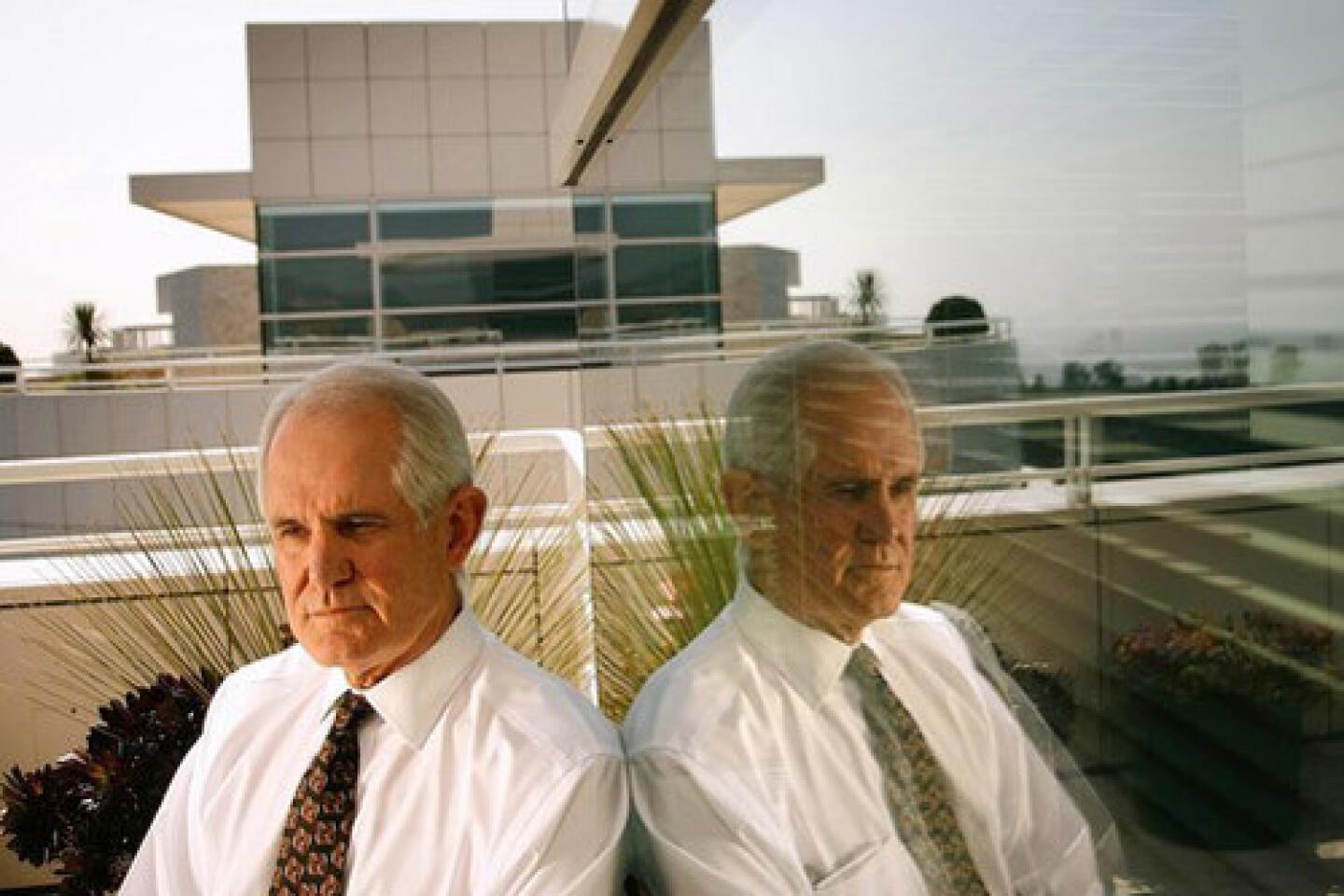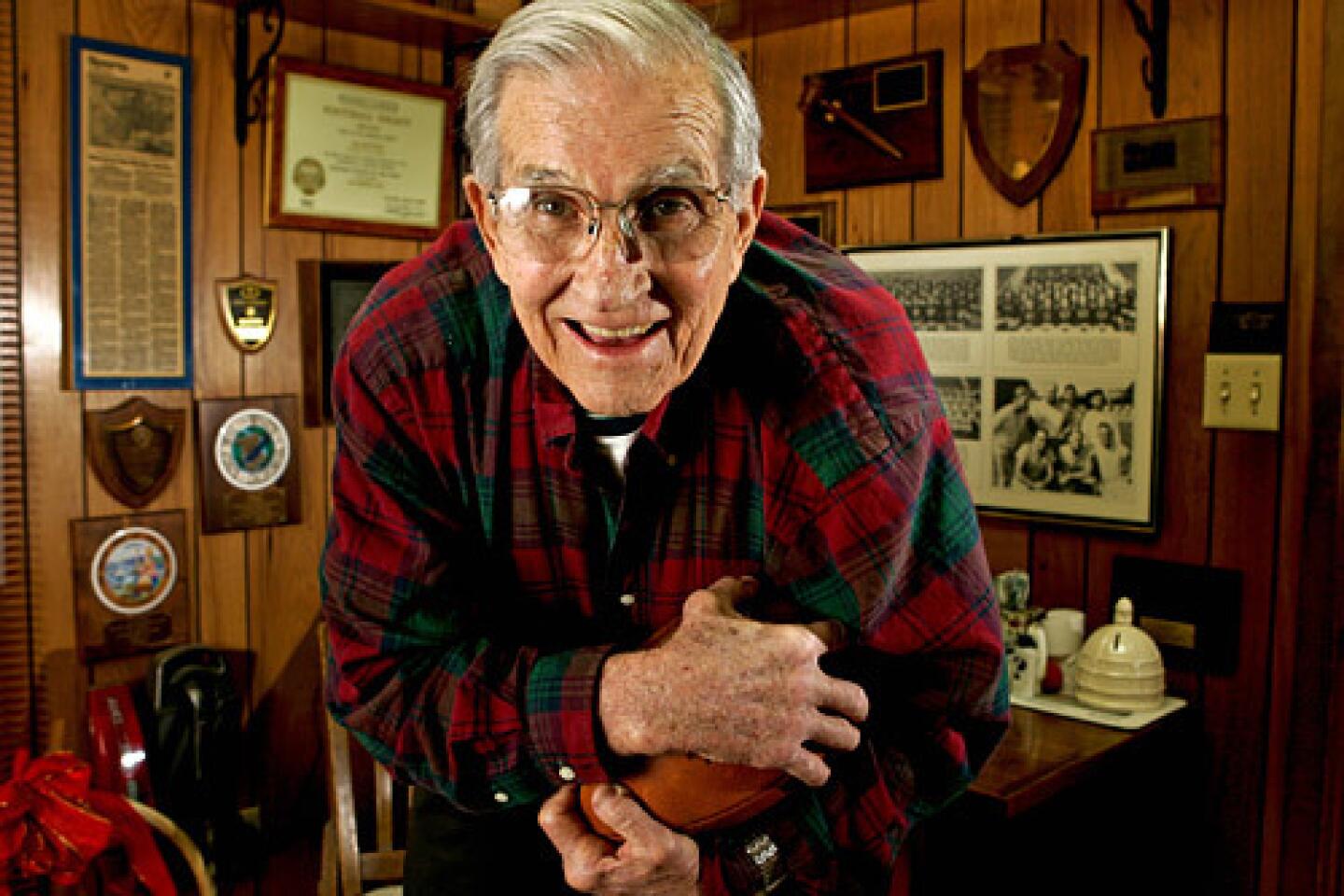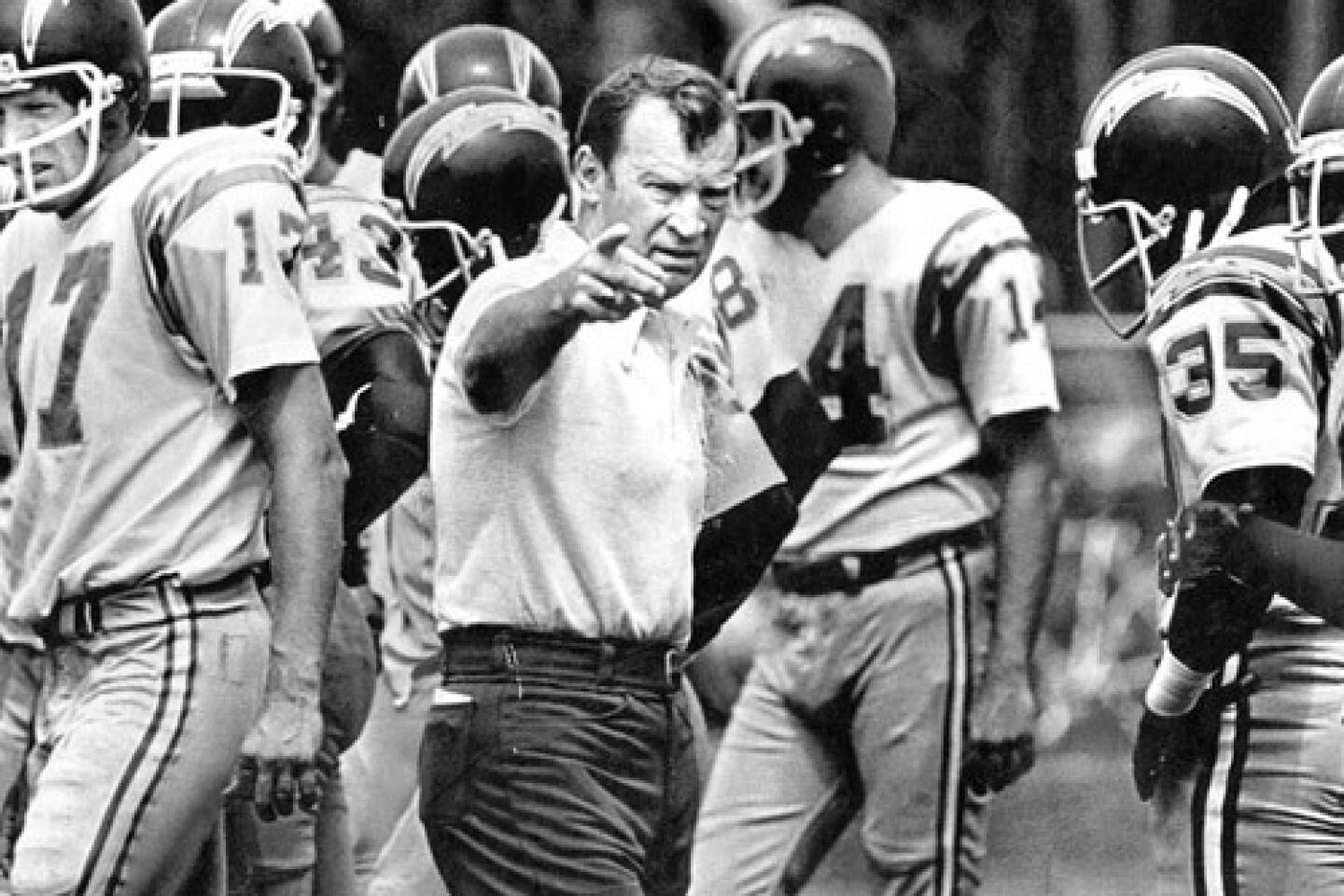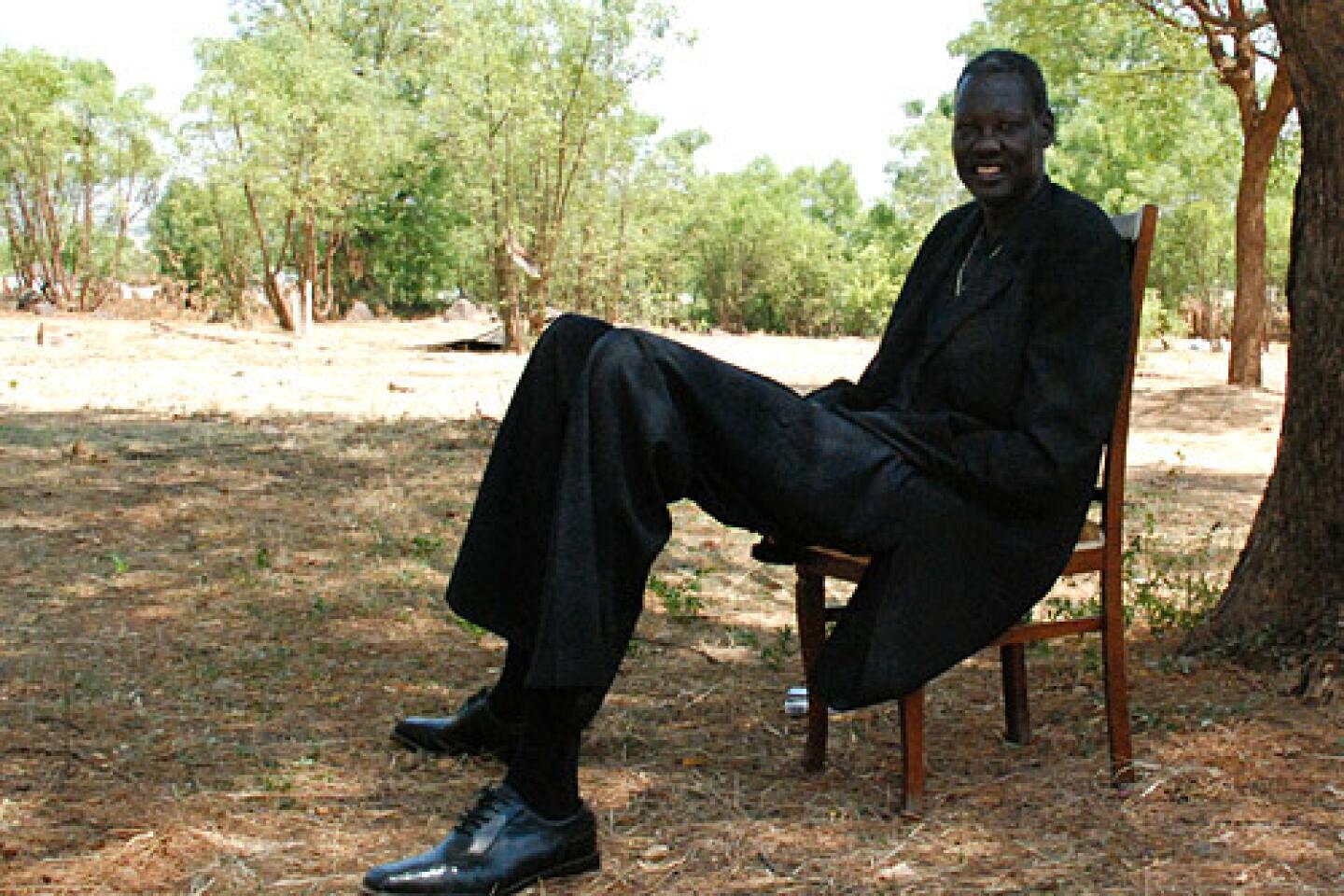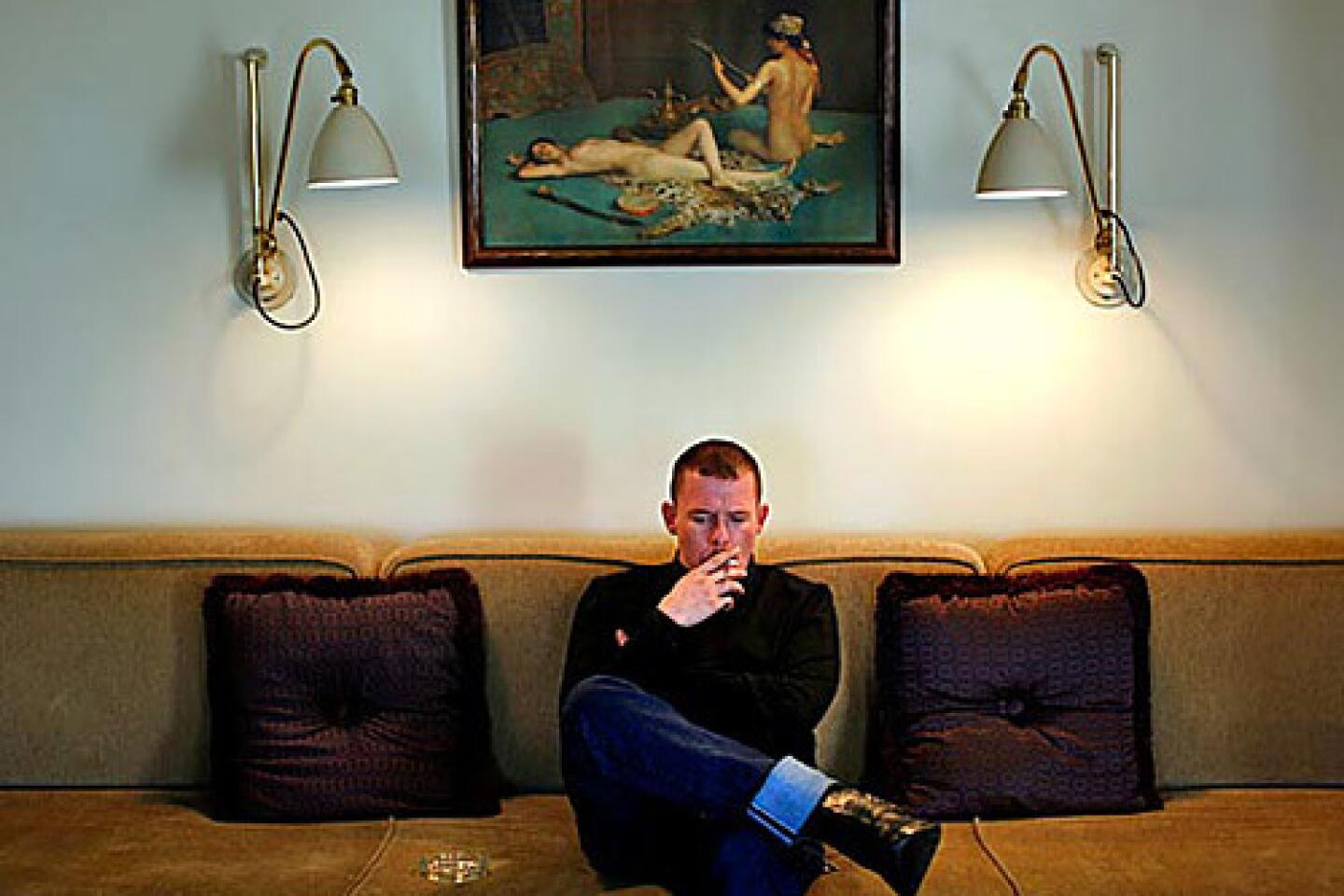Edwin Newman dies at 91; NBC news reporter and commentator
- Share via
Edwin Newman, known to several generations of television viewers as the dry-witted NBC reporter and commentator who covered coronations and assassinations and wrote two bestselling books on Americans’ mangling of the English language, has died. He was 91.
Newman died Aug. 13 of pneumonia in Oxford, England, where he had lived since 2007, according to family attorney Rupert Mead. He said Newman’s wife and daughter delayed the announcement of his death until Wednesday to allow themselves time to mourn privately.
During three decades at NBC, Newman covered the funeral of King George VI in England, the coronation of Queen Elizabeth II, the rise of French President Charles de Gaulle, the assassinations of the Rev. Martin Luther King Jr. and Robert F. Kennedy and the shooting of President Reagan by a would-be assassin.
He moderated two presidential debates, cutting off Reagan’s closing statement in his 1984 faceoff with Walter Mondale when the president ran overtime. He also hosted “Speaking Freely,” an hourlong interview show that displayed his intellectual gifts in conversation with such thinkers as zoologist Konrad Lorenz, novelist Ayn Rand and filmmaker Ingmar Bergman.
“Ed Newman was an early role model for my generation of NBC News correspondents — worldly, erudite and droll, qualities that were enriched by his pitch-perfect use of the English language,” former NBC News anchor Tom Brokaw said in a statement Wednesday.
Newman, long a prickly grammarian, was moved by the political doublespeak of the Watergate era to expound on linguistic crimes in his 1974 book “Strictly Speaking.” It elicited from readers so many new examples of bad English that he wrote a second volume on the subject, “A Civil Tongue” (1976). Redundancies, such as “totally complete” and “fatal slaying” were favorite Newman targets. He also hated words like “meanwhile” and “hopefully” when used to mask a speaker’s inability to connect his or her thoughts more trenchantly. “Abandon ‘Hopefully’ All Ye Who Enter Here,” read a sign that he kept in his New York office.
“A civil tongue,” he wrote, “means to me a language that is not bogged down in jargon, not puffed up with false dignity, not studded with trick phrases that have lost their meaning.”
After retiring from NBC News in 1984, Newman baffled former colleagues when he accepted a job as host of USA cable network’s short-lived “Weekly World News,” a television version of the outlandish supermarket tabloid. Newman defended his decision in interviews, saying that he hoped viewers saw the humor in a straight-faced newsman reading stories about poltergeists in lavatories and women impregnated by Big Foot. Humorist Dave Barry said Newman’s new role was as mind-boggling as “ Walter Cronkite doing the Buttmaster commercials.”
Born Jan. 25, 1919, in New York City, Newman earned a bachelor’s degree in political science from the University of Wisconsin in 1940. His first job was taking dictation in the Washington bureau of the International News Service.
He served in World War II as a communications officer in the Navy. After his discharge in 1945 he worked for a number of news organizations, including CBS News as an assistant to Eric Sevareid. In 1949 he moved to London with his British wife, Rigel. She survives him along with a daughter, Nancy.
In 1952 he became NBC’s correspondent in London. He served in Rome and Paris before earning a spot with NBC News in New York in 1961. He won an Overseas Press Club award that year and a Peabody Award in 1966.
His grizzled face, with its sharply arched eyebrows and receding hairline, became familiar to viewers when major news broke. He was the man NBC viewers saw first when the network reported the shooting of Robert F. Kennedy at the Ambassador Hotel in Los Angeles in 1968 and the attempted assassination of George Wallace on the campaign trail in 1972. He announced President Kennedy’s death on NBC radio on Nov. 22, 1963, and anchored the television coverage of the 1967 Arab-Israeli War and the Vietnam ceasefire in 1973. One of his last major appearances was anchoring the early coverage of the attempted assassination of President Reagan in 1981.
He frequently filled in on NBC’s “Today” show. When host Hugh Downs left in 1971, “We all thought Edwin Newman … would replace Hugh,” Barbara Walters wrote in “Audition,” her 2009 memoir. “He had intelligence, a dry sort of humor, and he fitted right in. But evidently NBC felt he was either too dry or too intellectual or too something and started auditioning other men for the job,” which went to Frank McGee.
After William Small arrived from CBS to become president of NBC News in 1980, Newman found himself eclipsed by Roger Mudd and Marvin Kalb, the CBS stars who came over with Small. During his last years as a network regular his main duty was leading the 40-second news breaks.
He had a wicked comic streak, evident in his language critiques and forays into other television formats, including appearances on such sitcoms as “The Golden Girls” and “Murphy Brown.”
“His sharp sense of humor,” NBC Nightly News anchor and managing editor Brian Williams said Wednesday, was “always first aimed squarely at himself.”
This was the case in one of Newman’s guest roles on “Saturday Night Live.”
He appeared opposite Julia Louis-Dreyfus in a skit in which she played a desperate woman calling a suicide hotline manned by an infuriating Newman. “All I do,” he later told the New York Daily News, “is correct her English.”
elaine.woo@latimes.com
More to Read
Start your day right
Sign up for Essential California for the L.A. Times biggest news, features and recommendations in your inbox six days a week.
You may occasionally receive promotional content from the Los Angeles Times.
